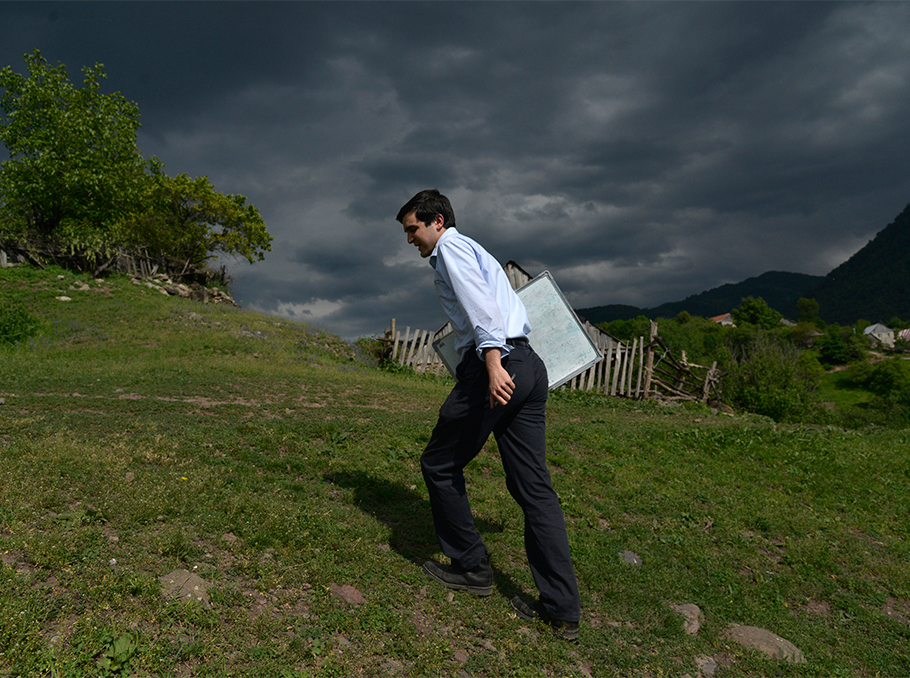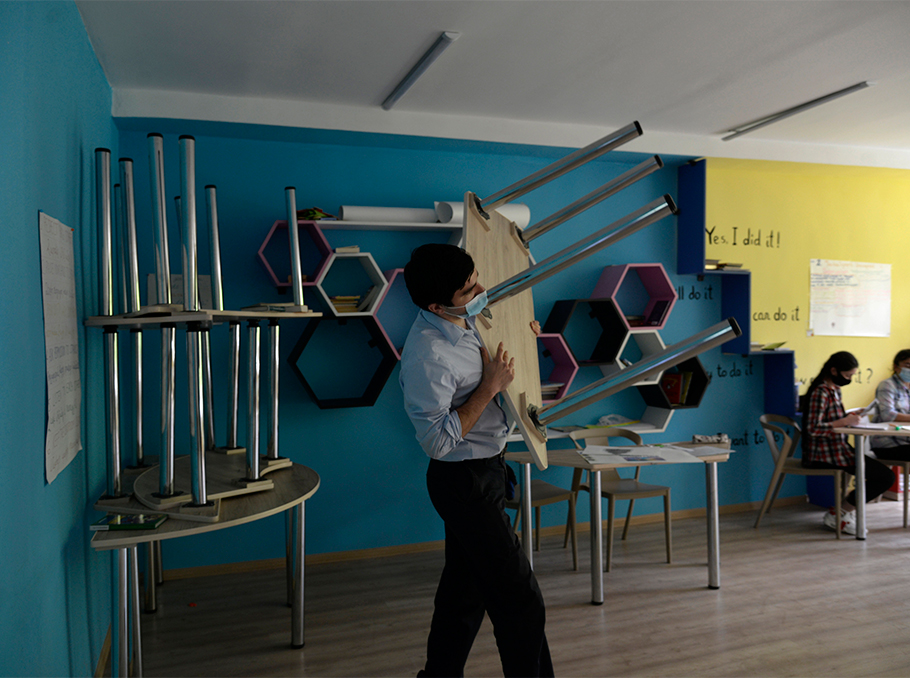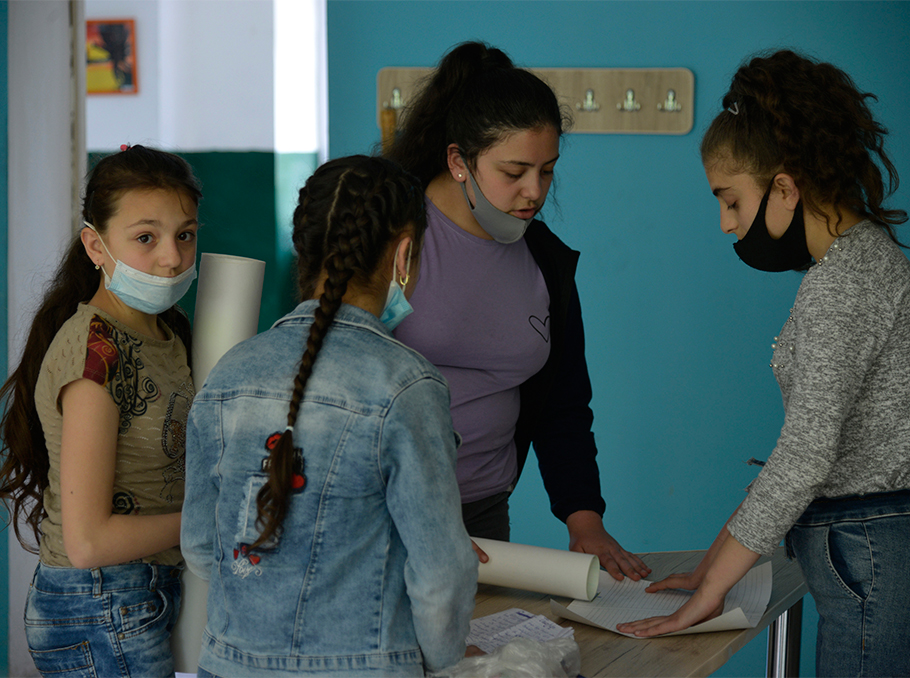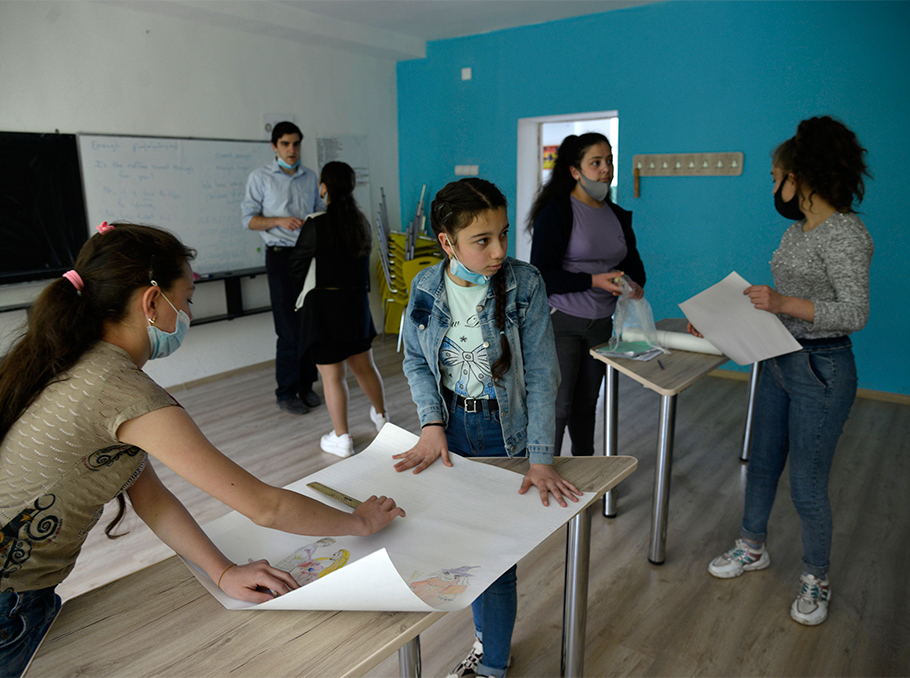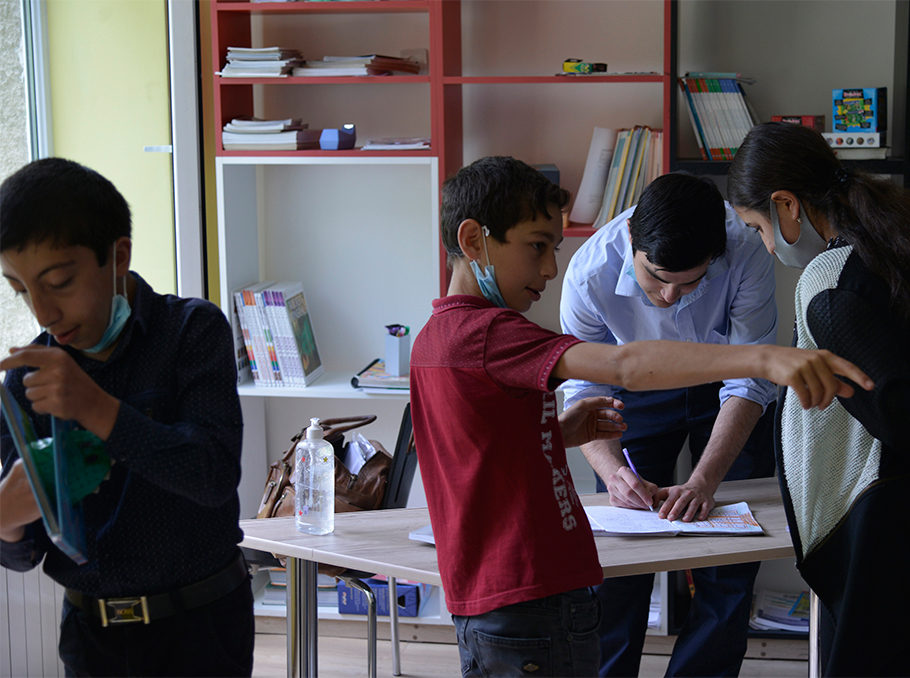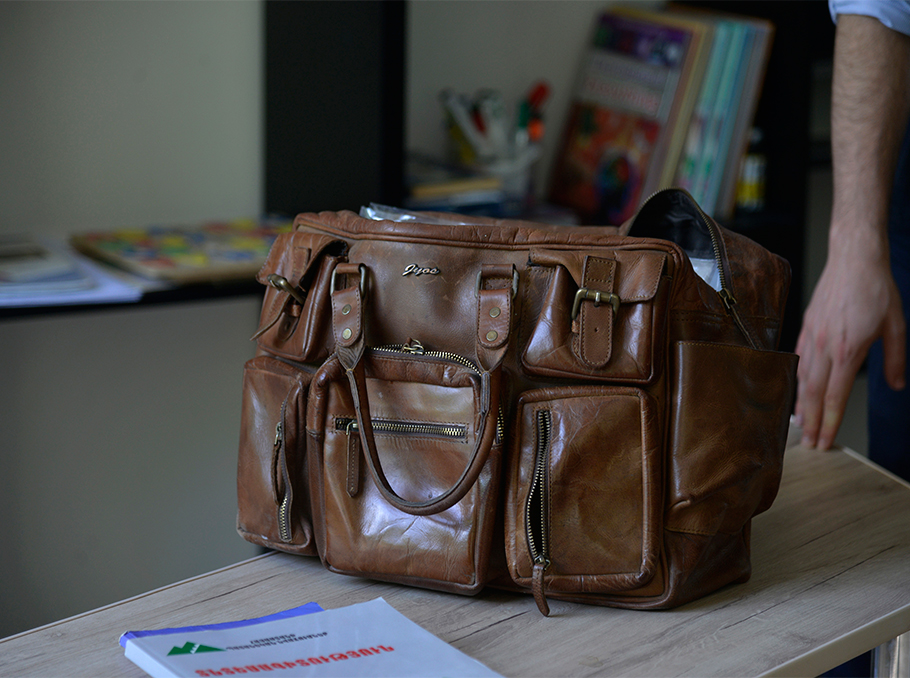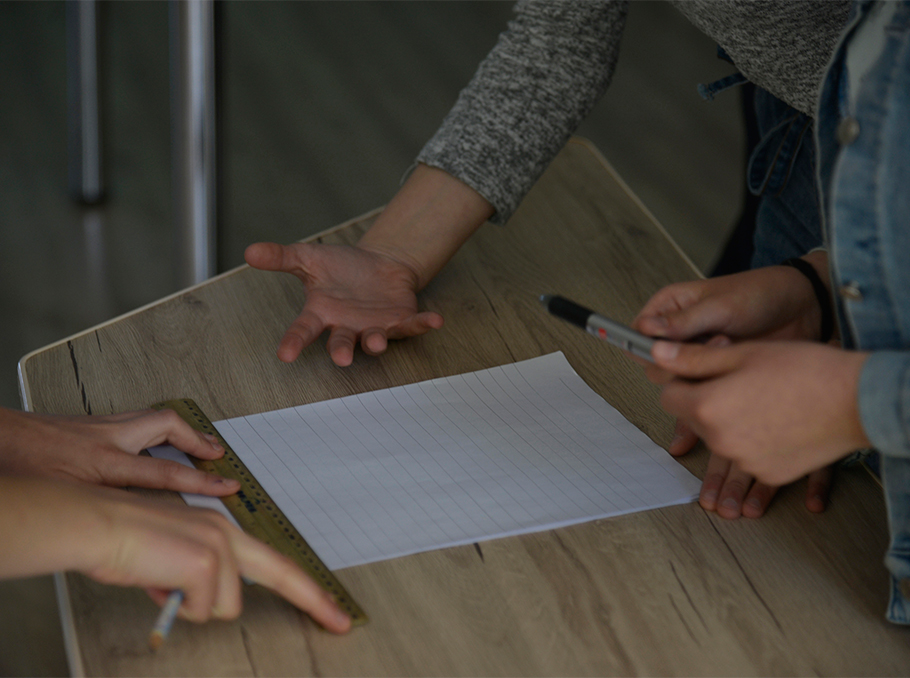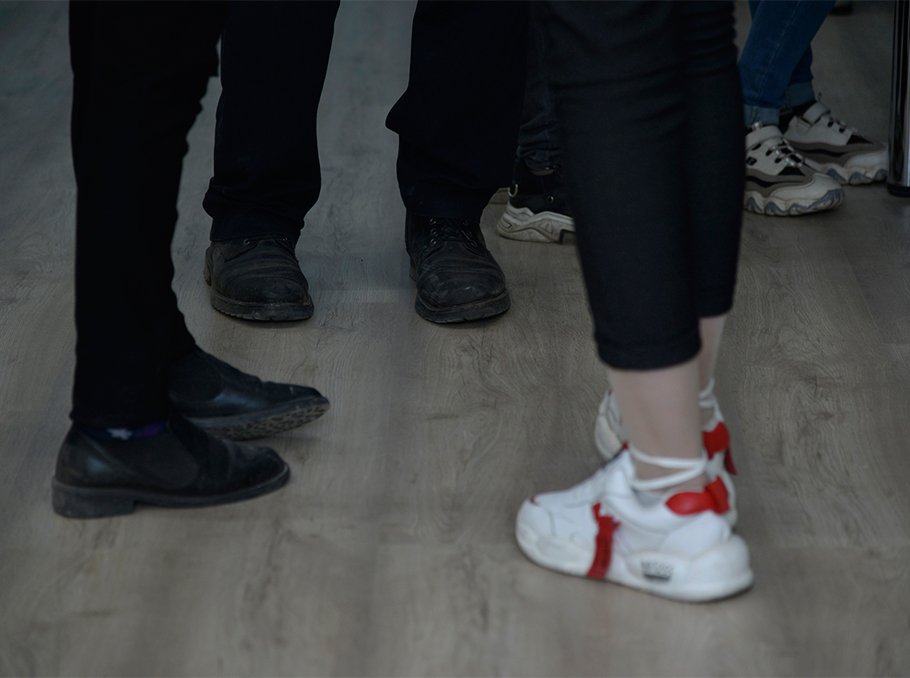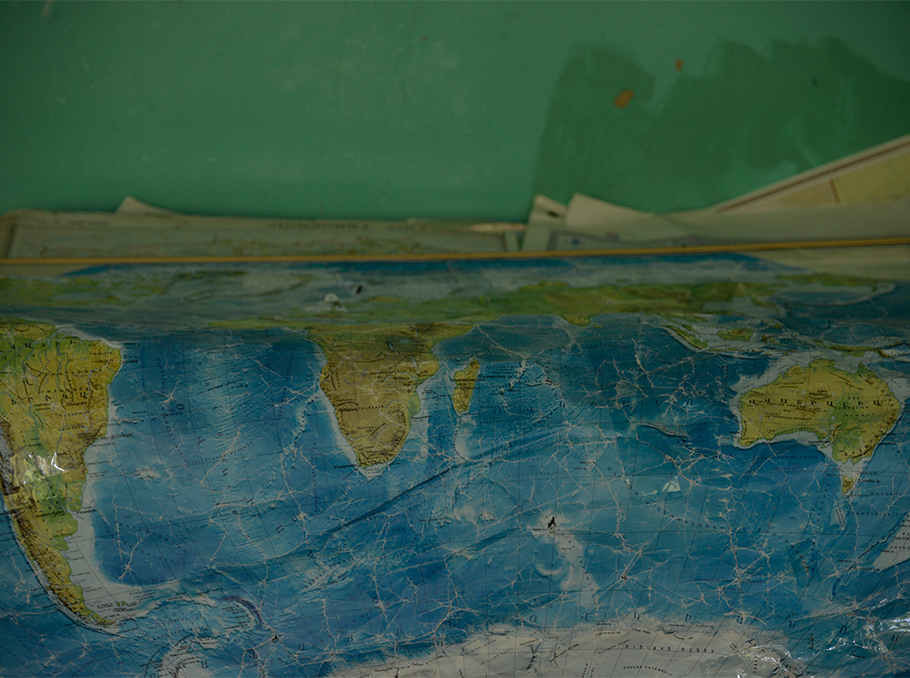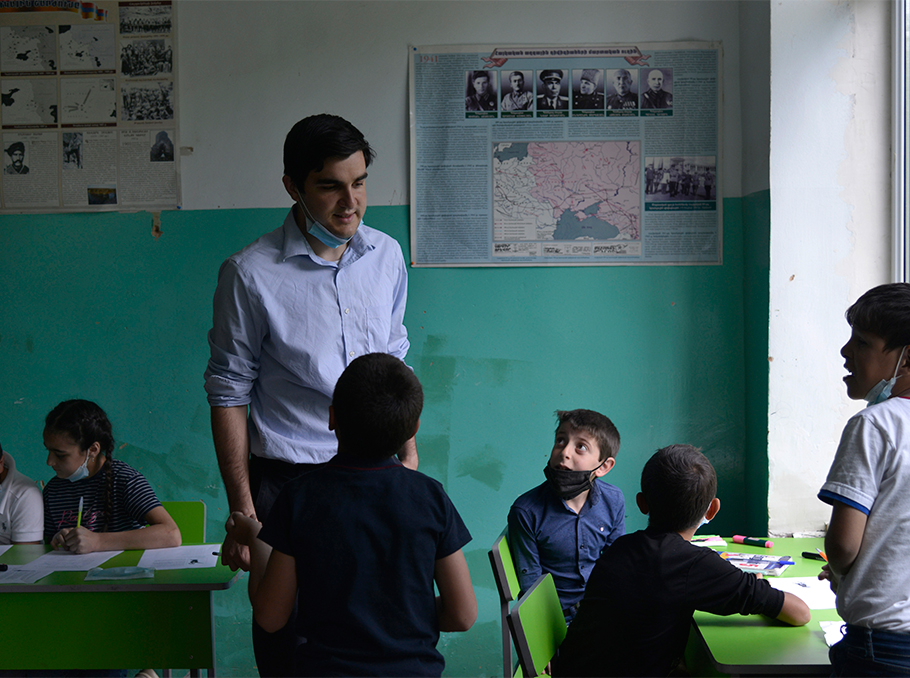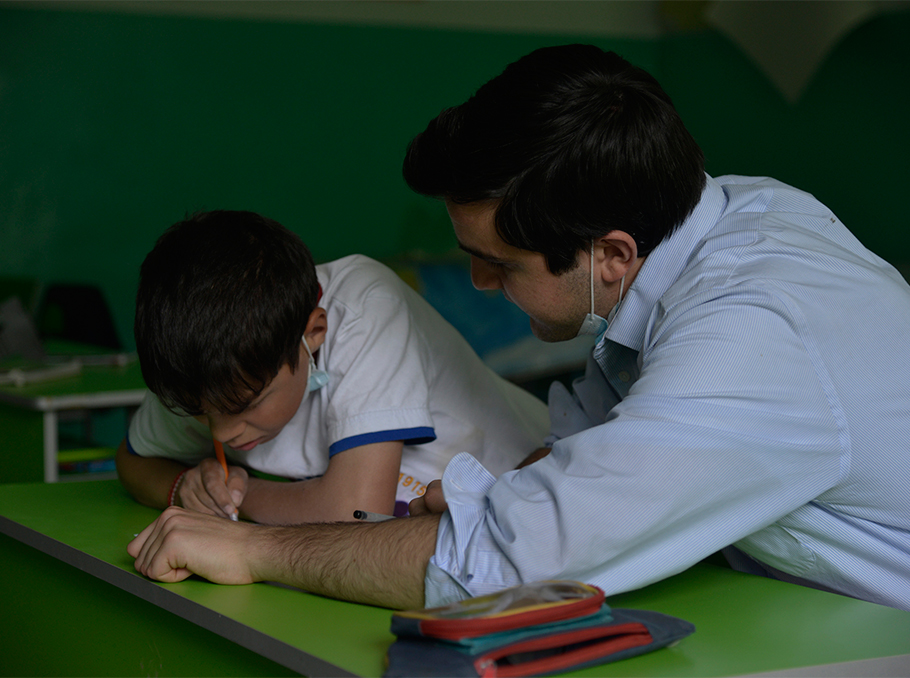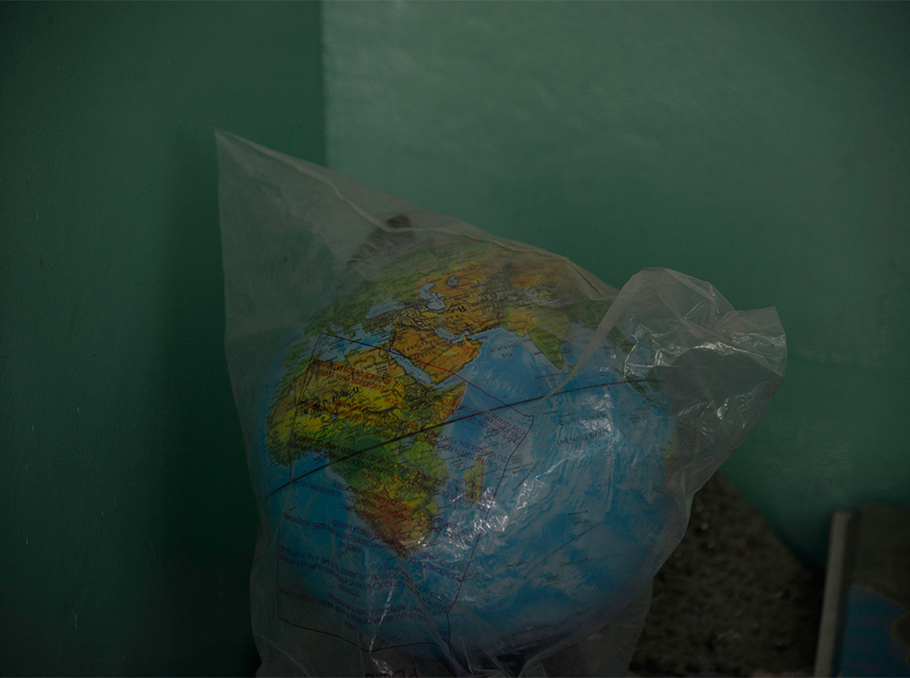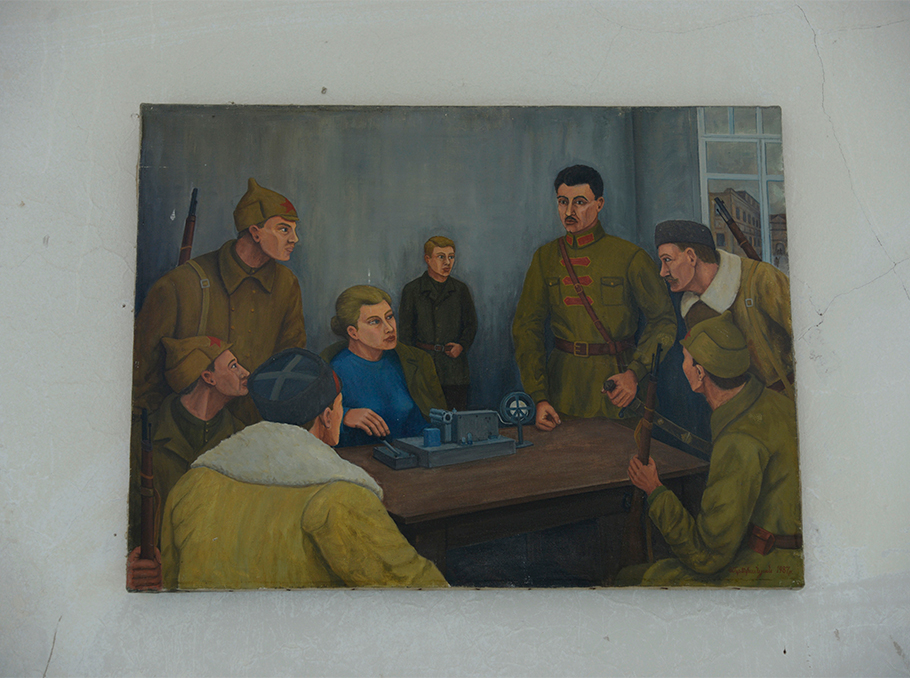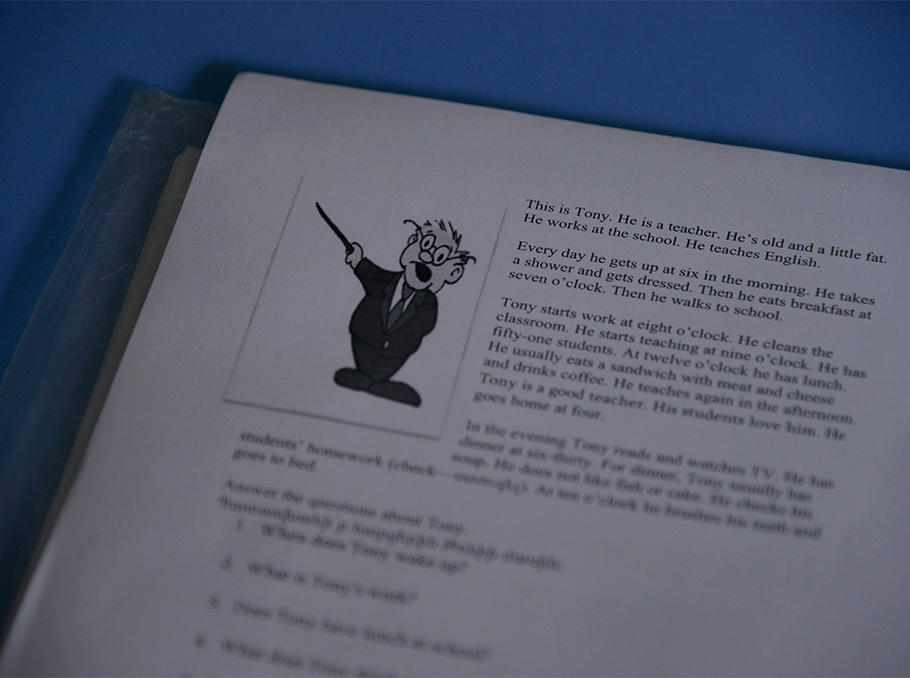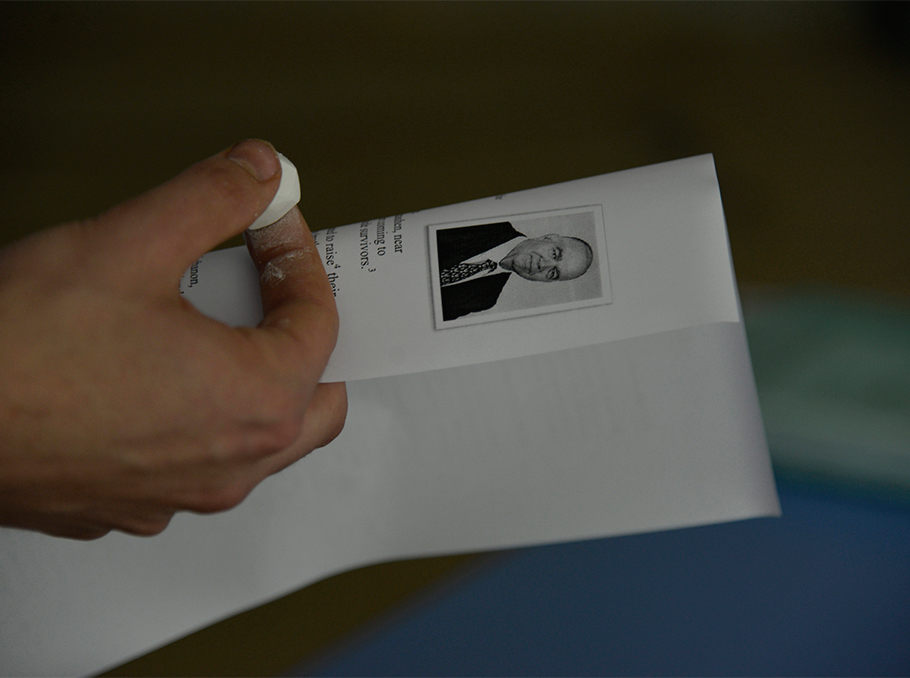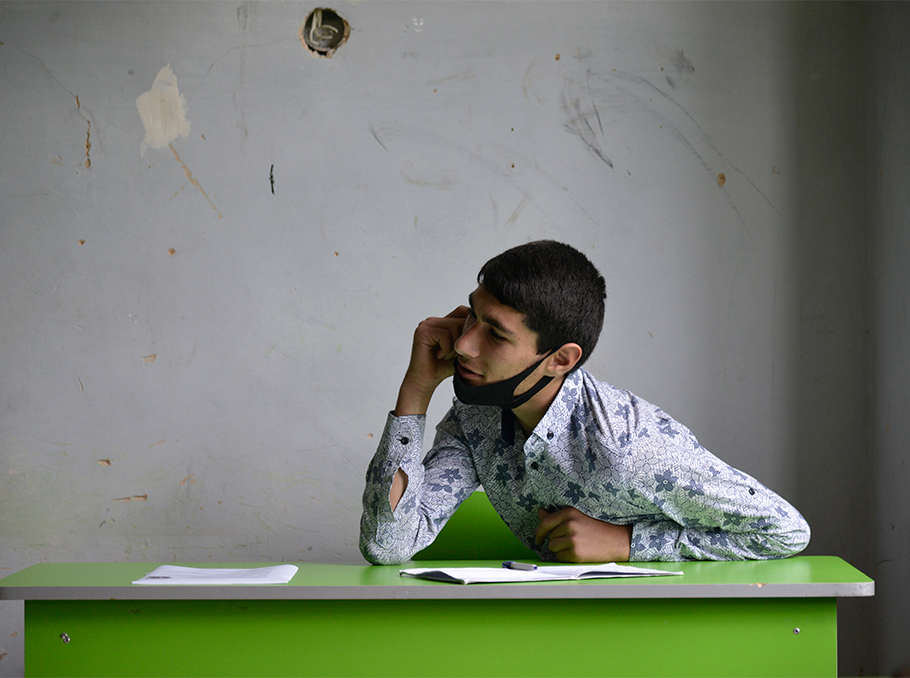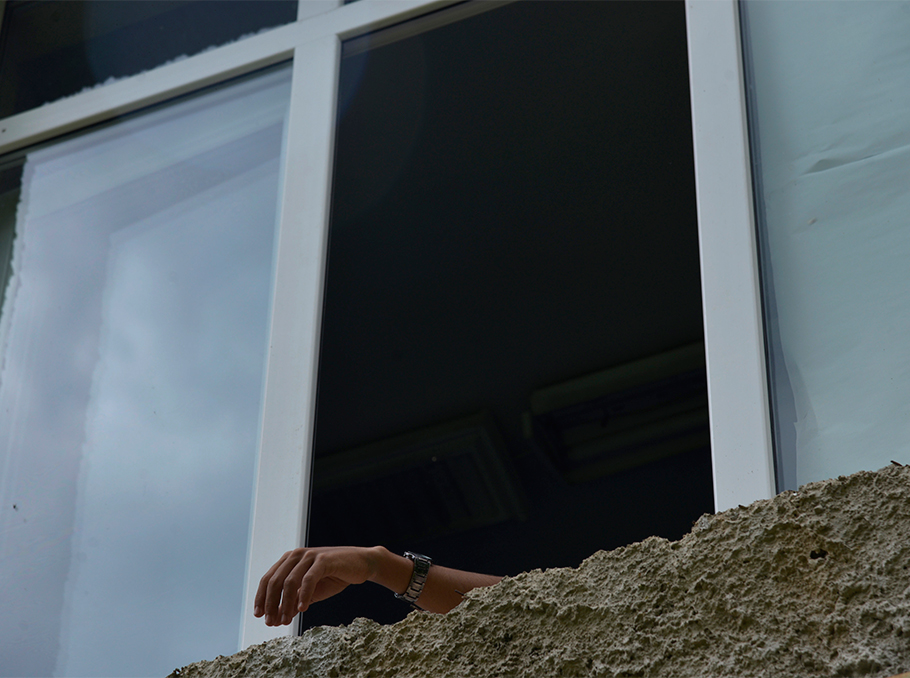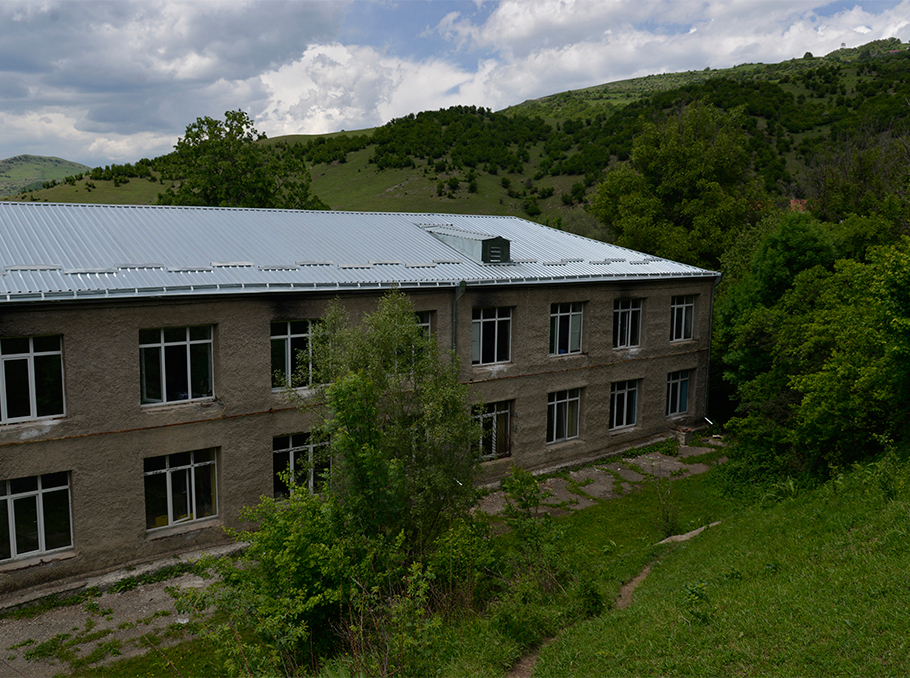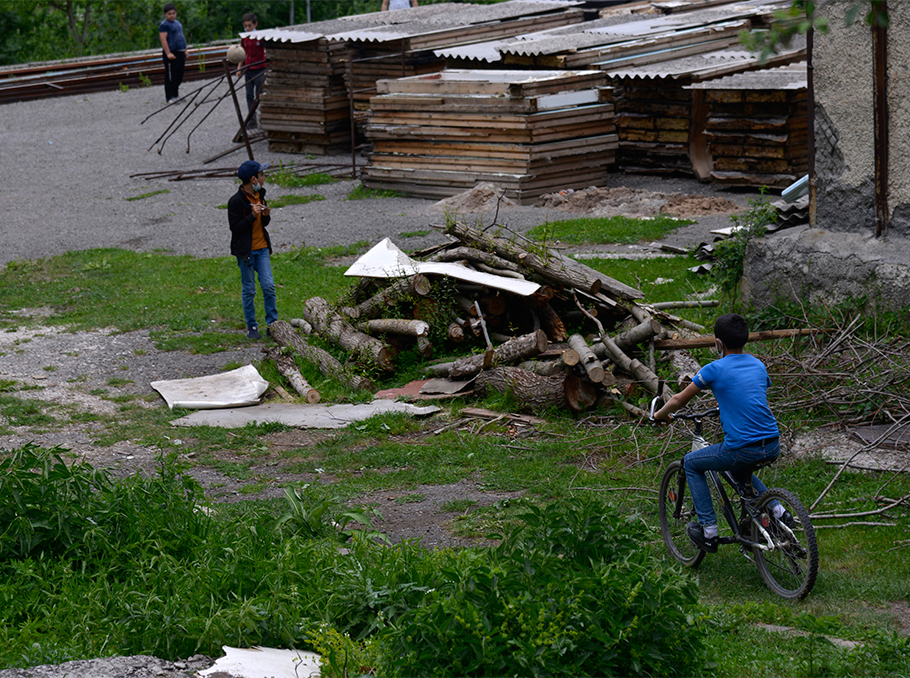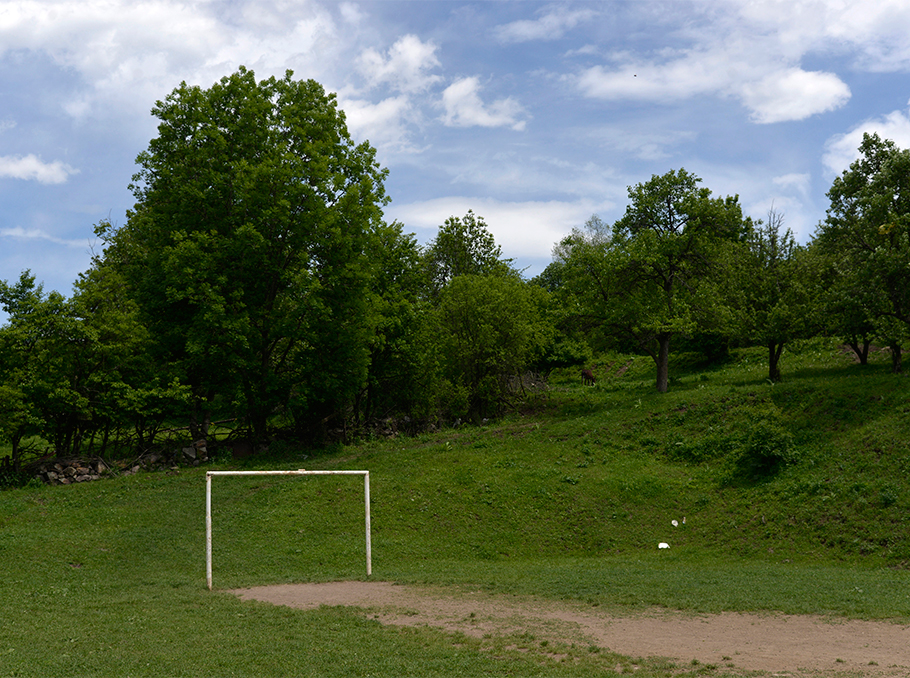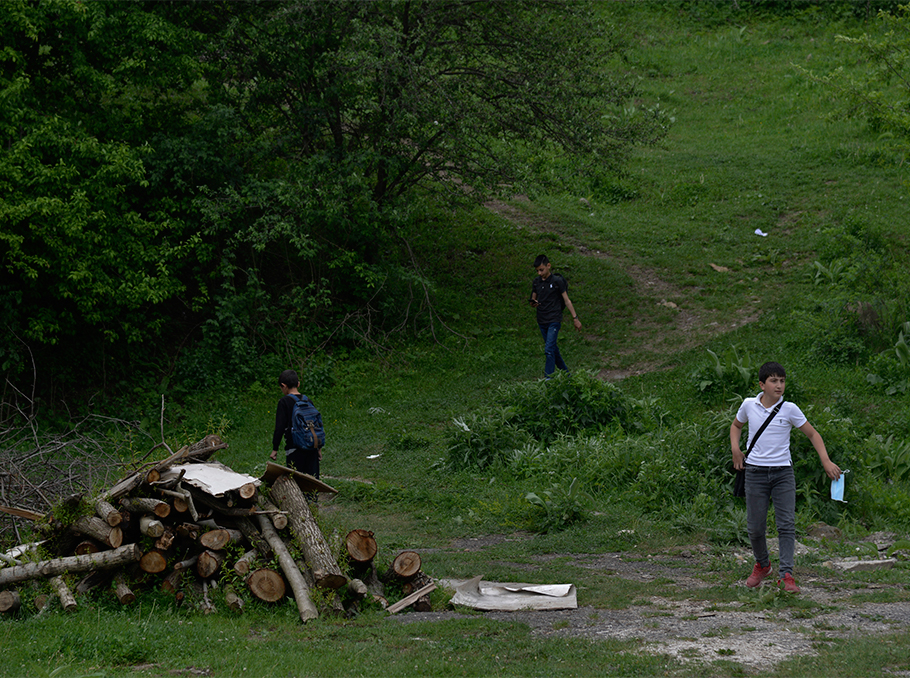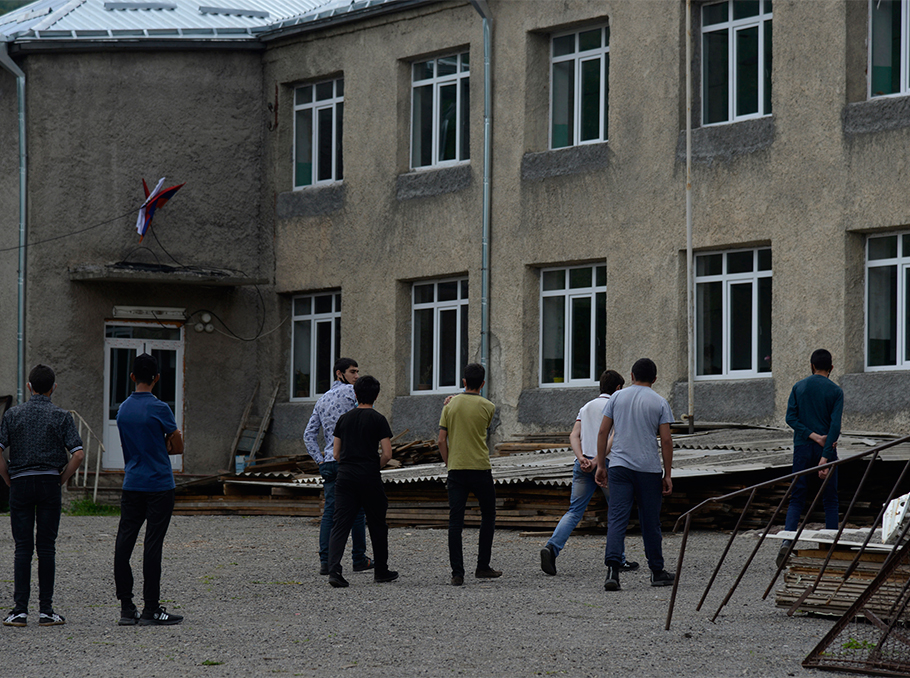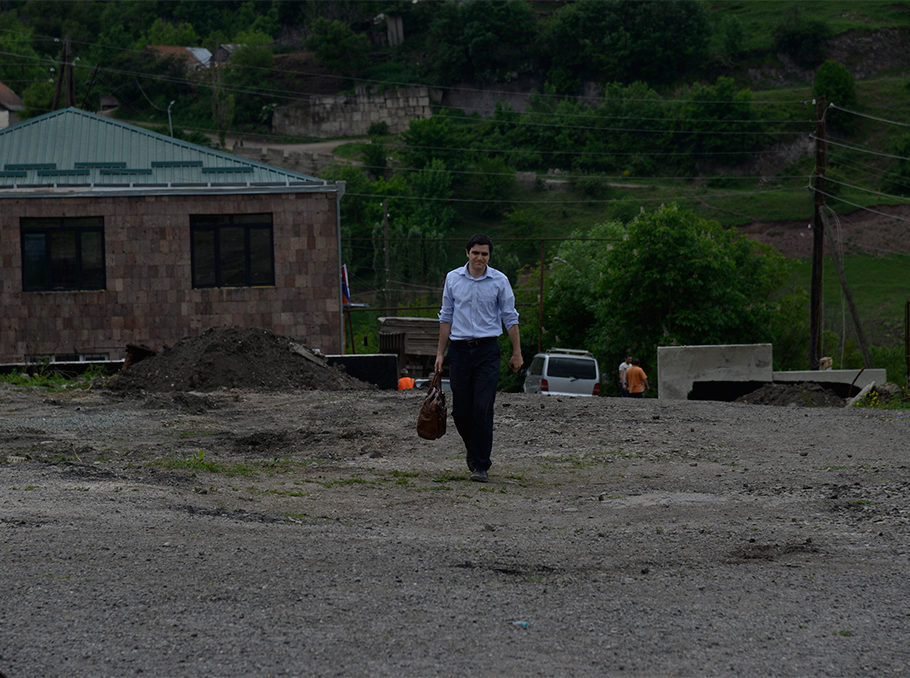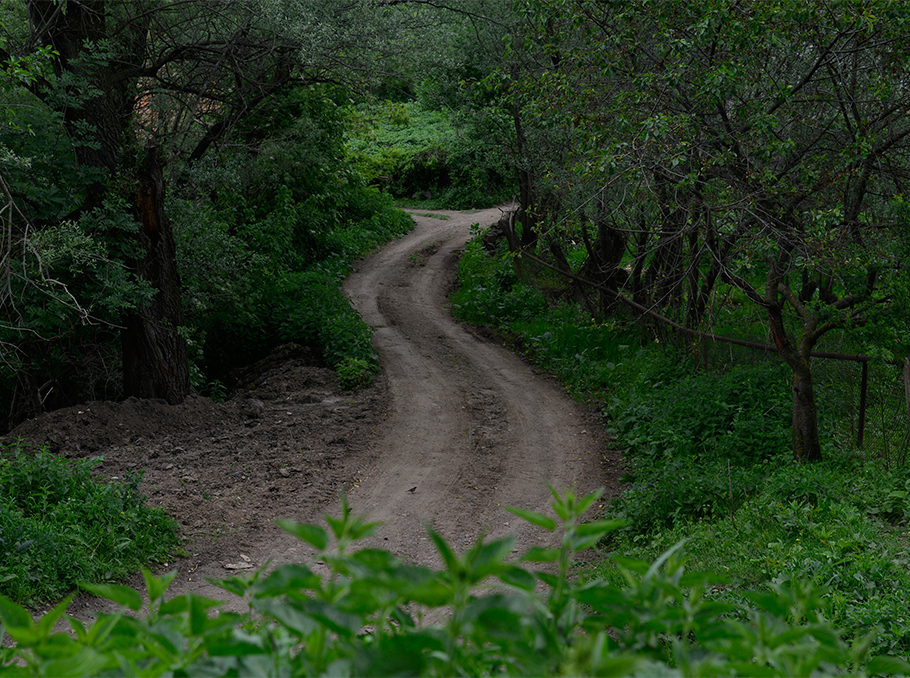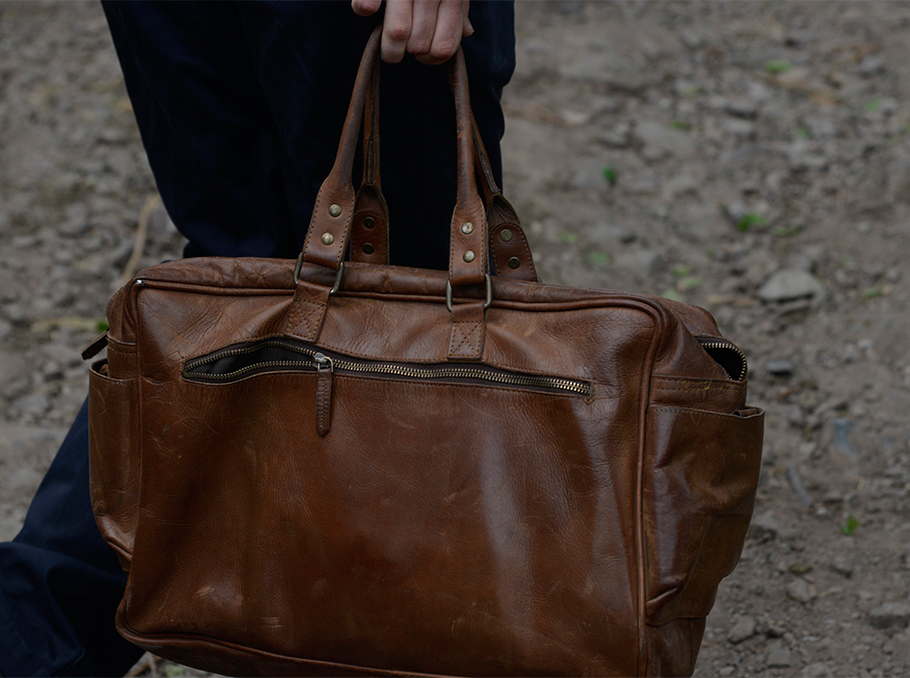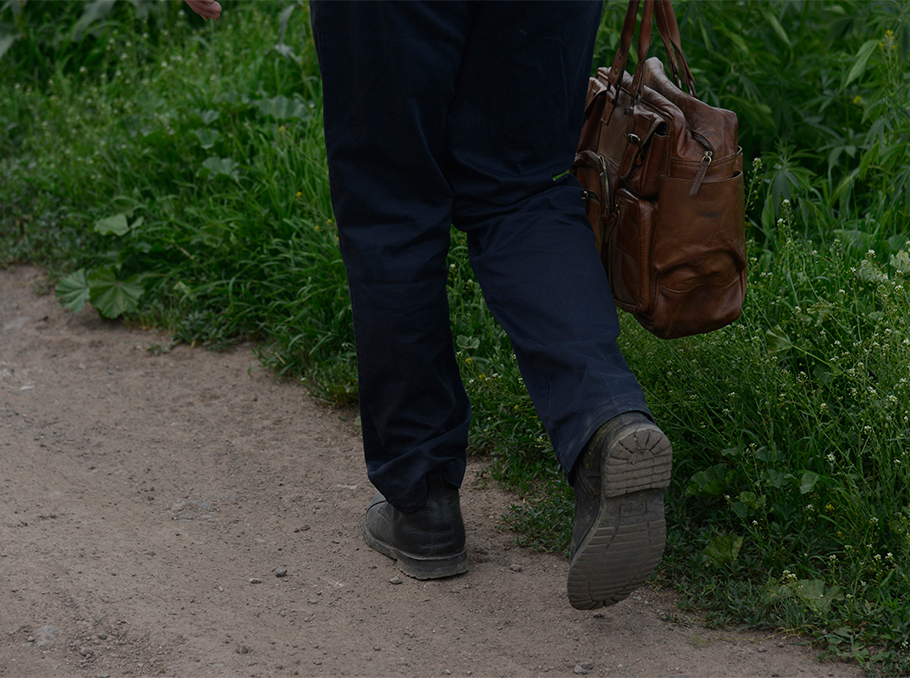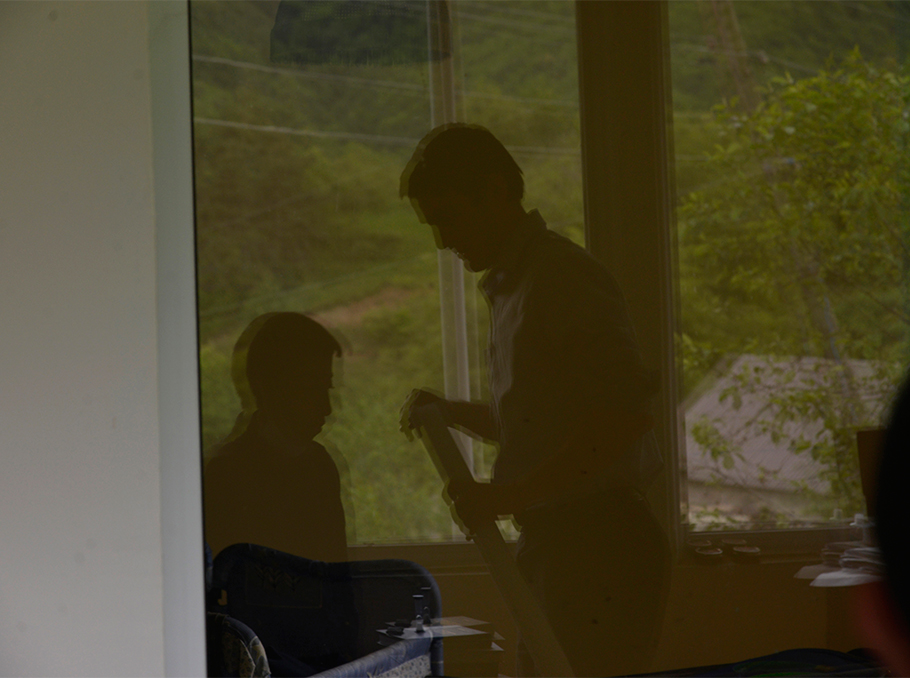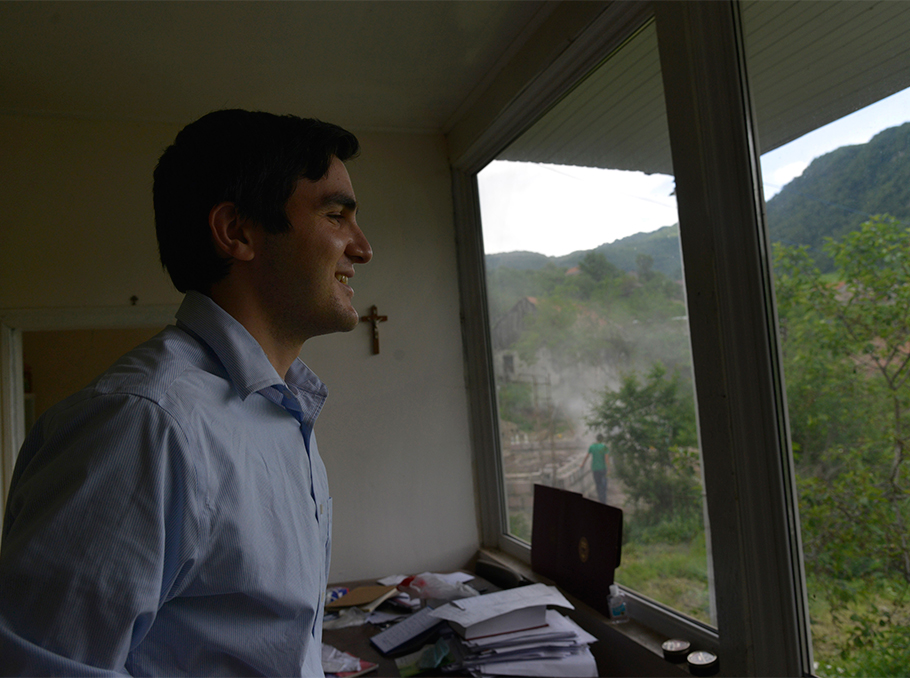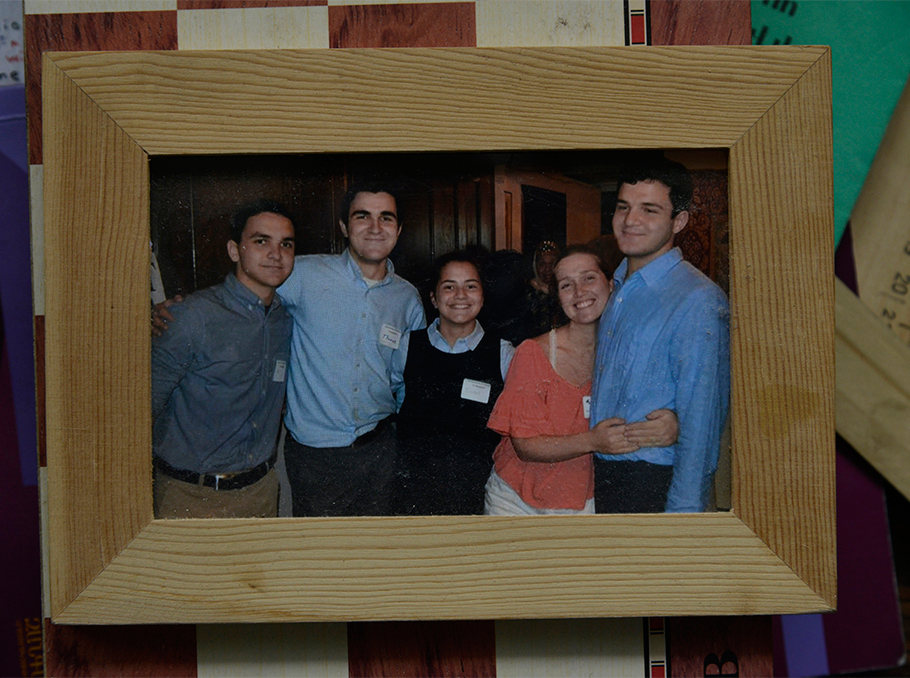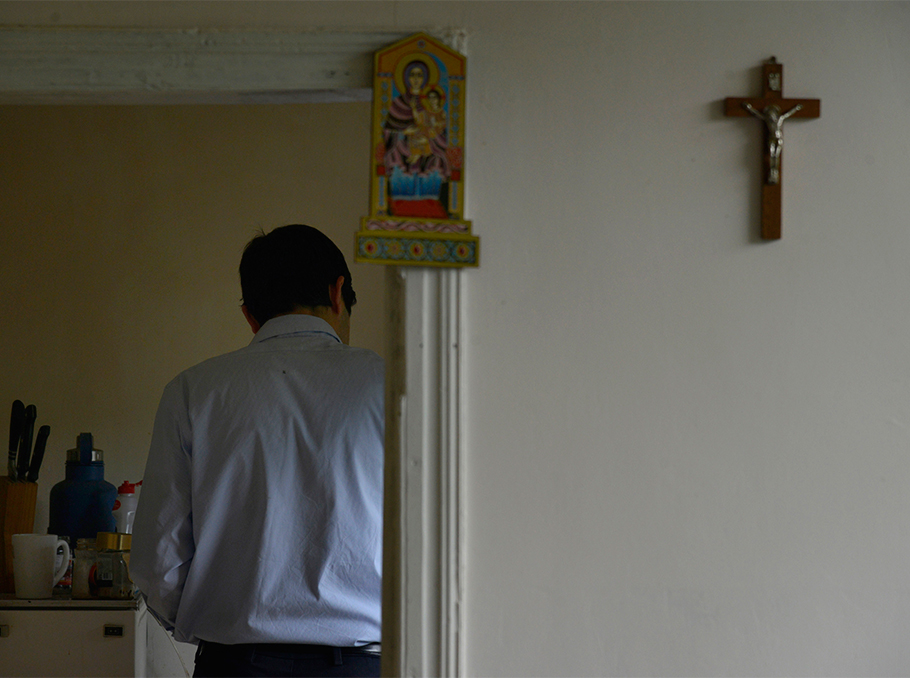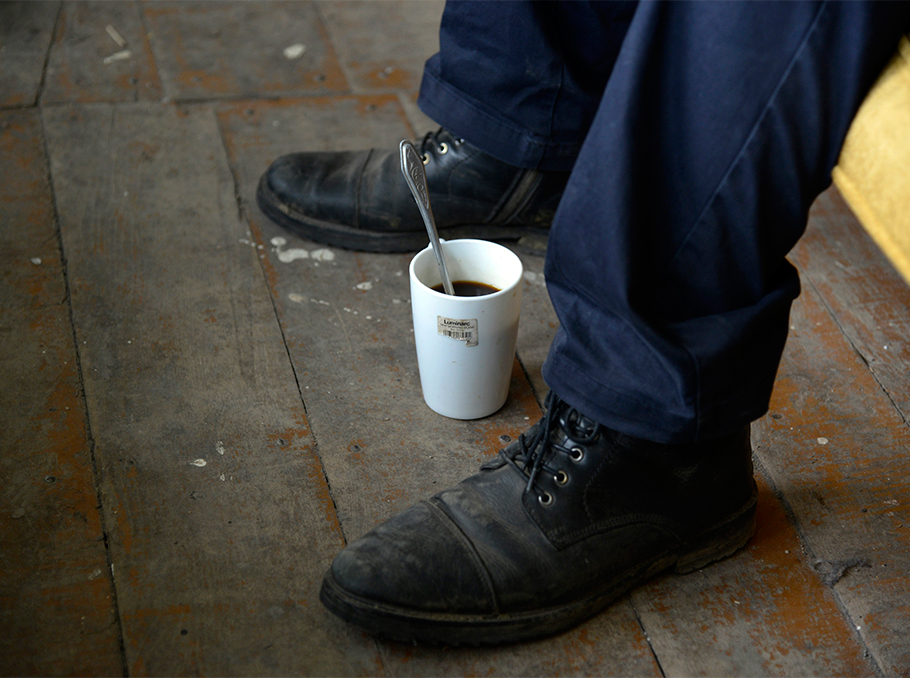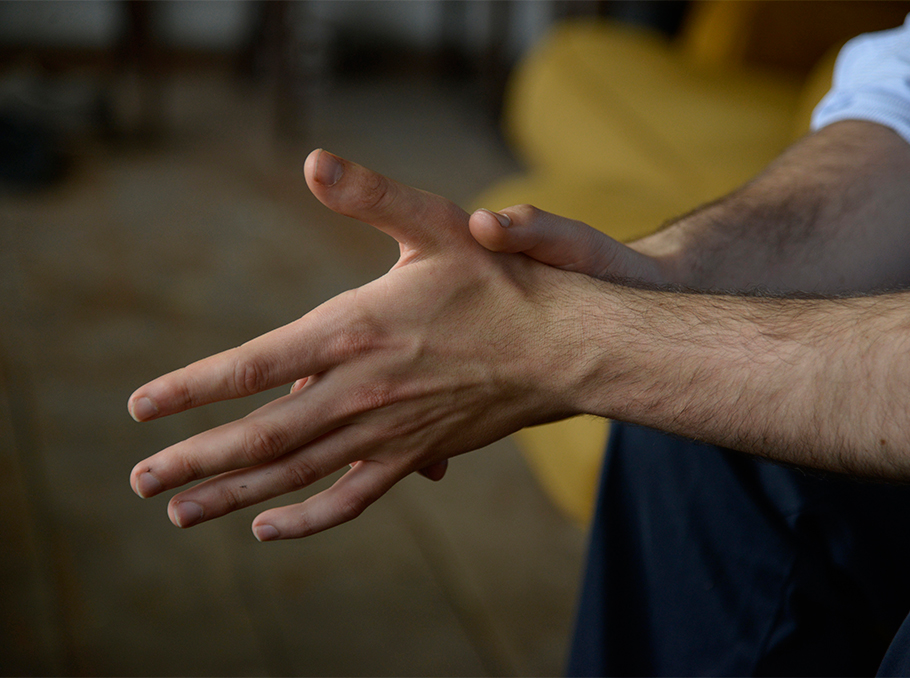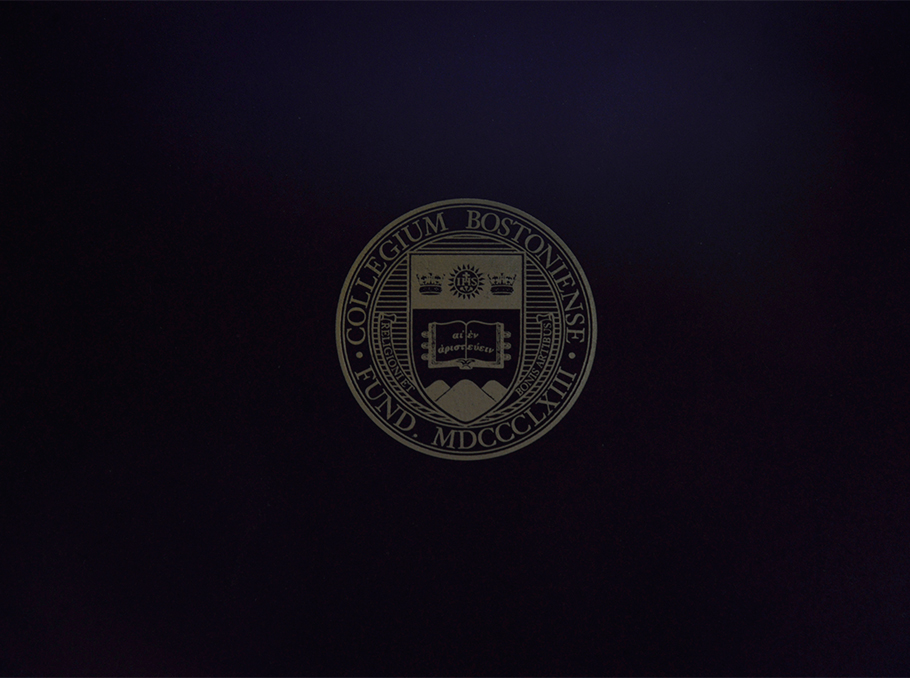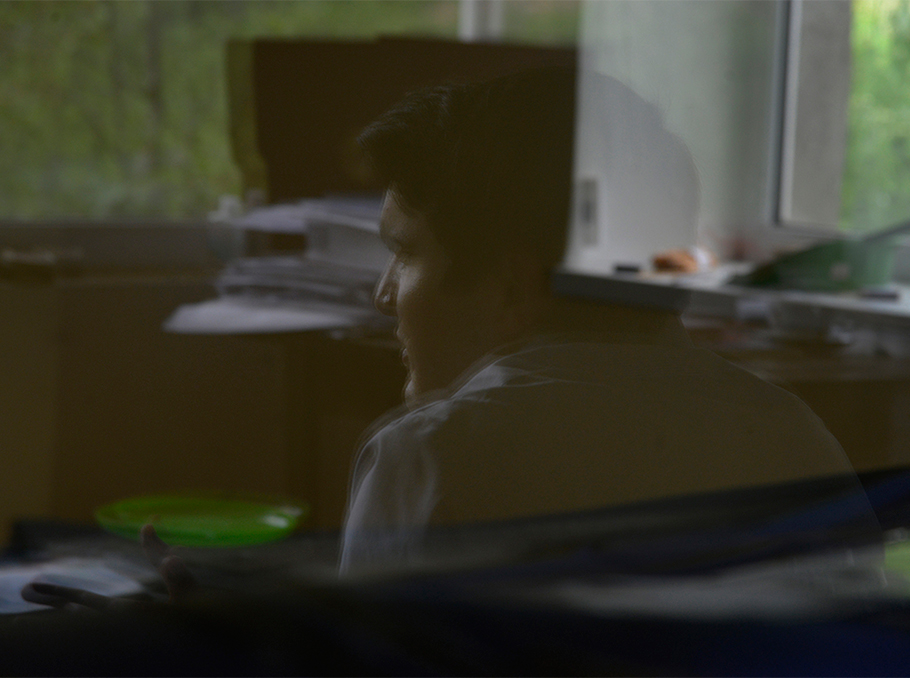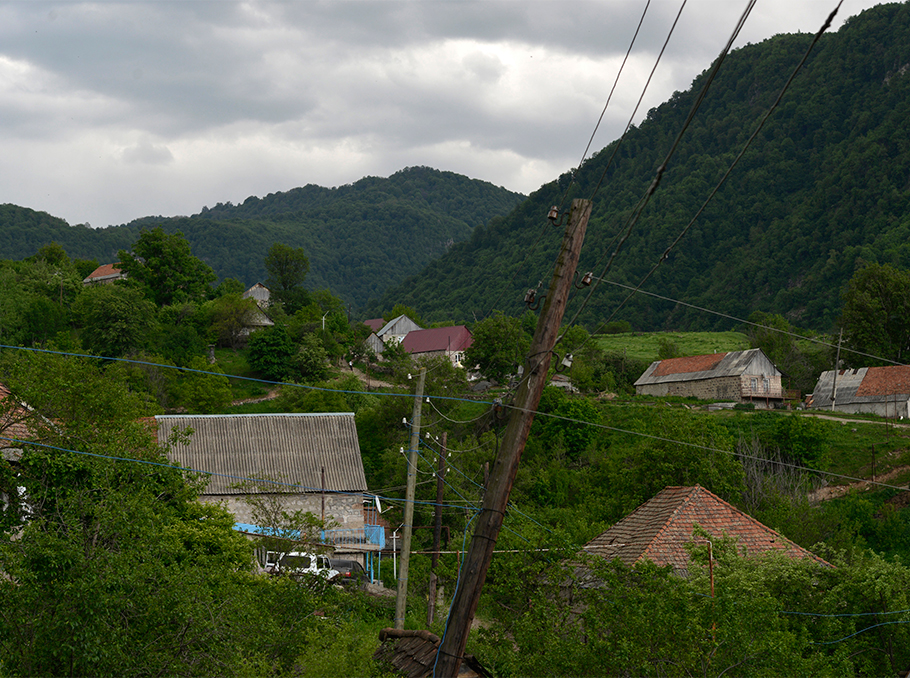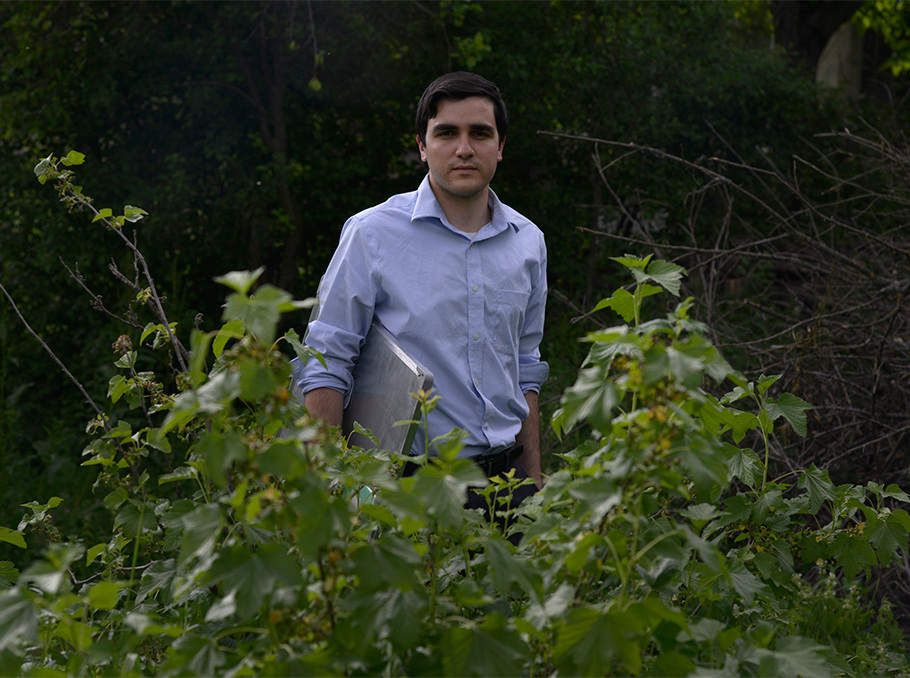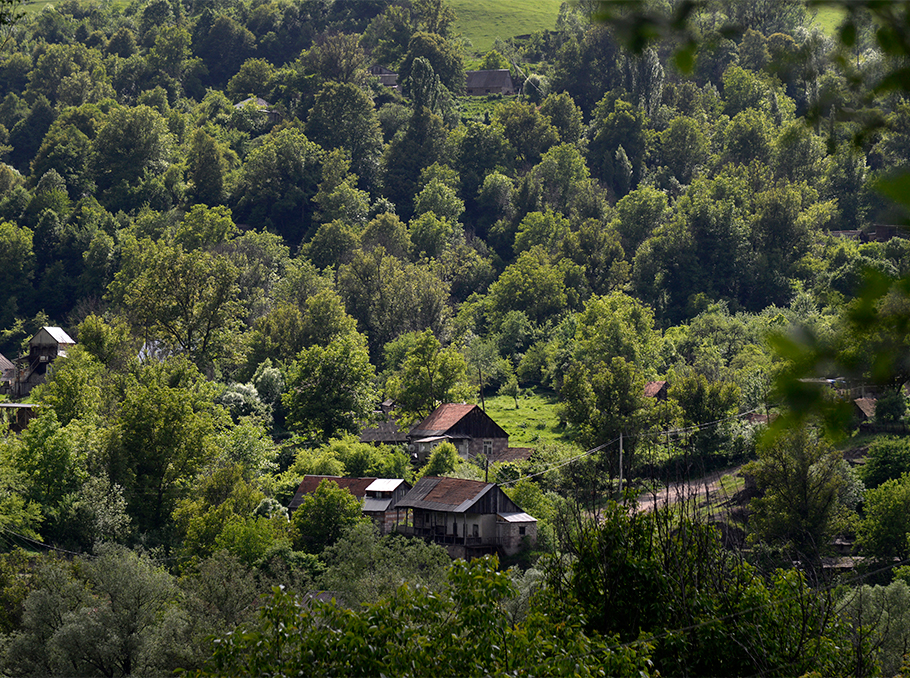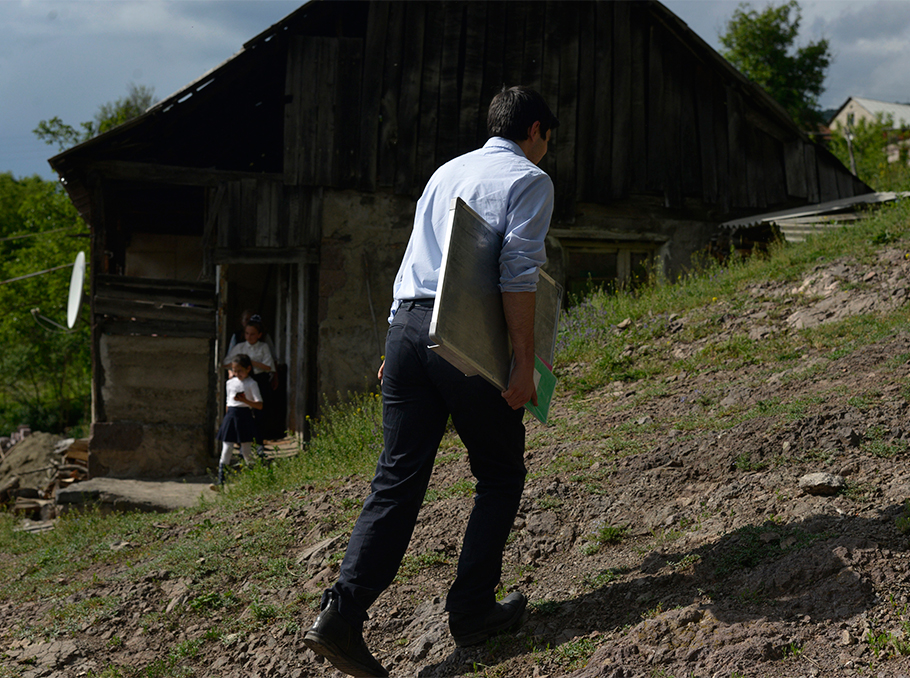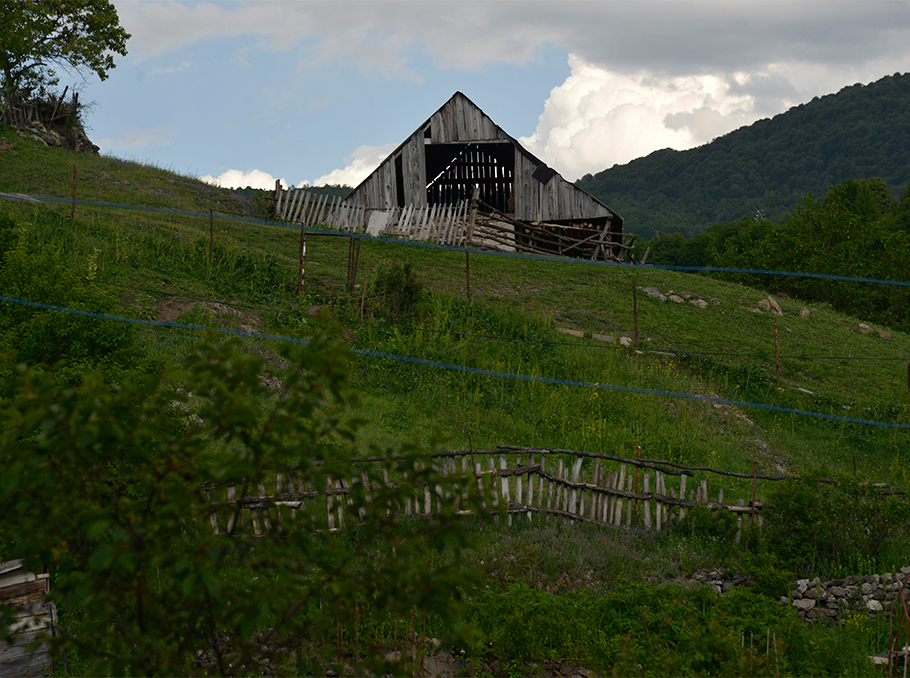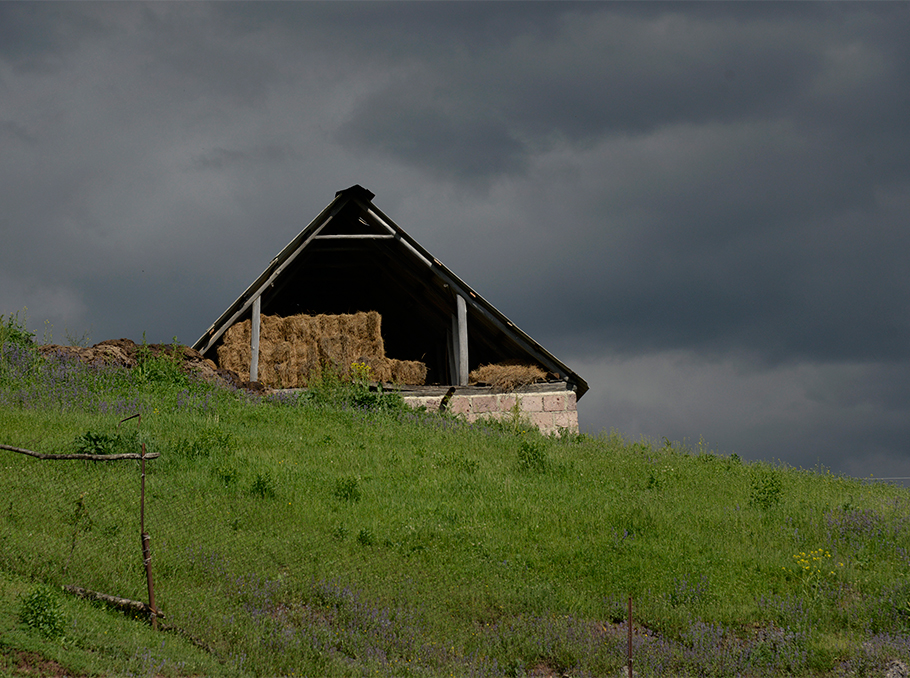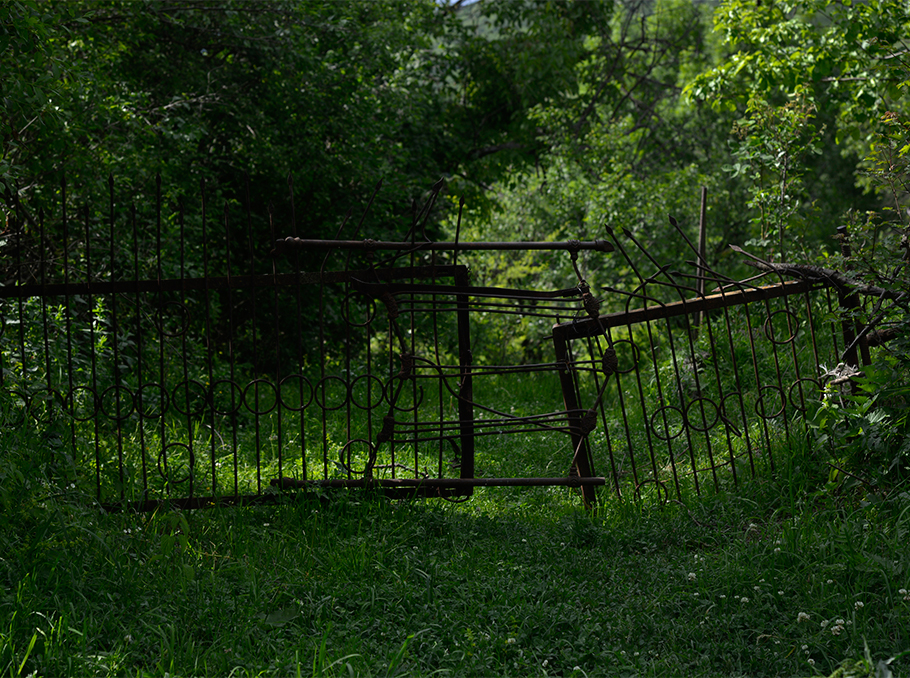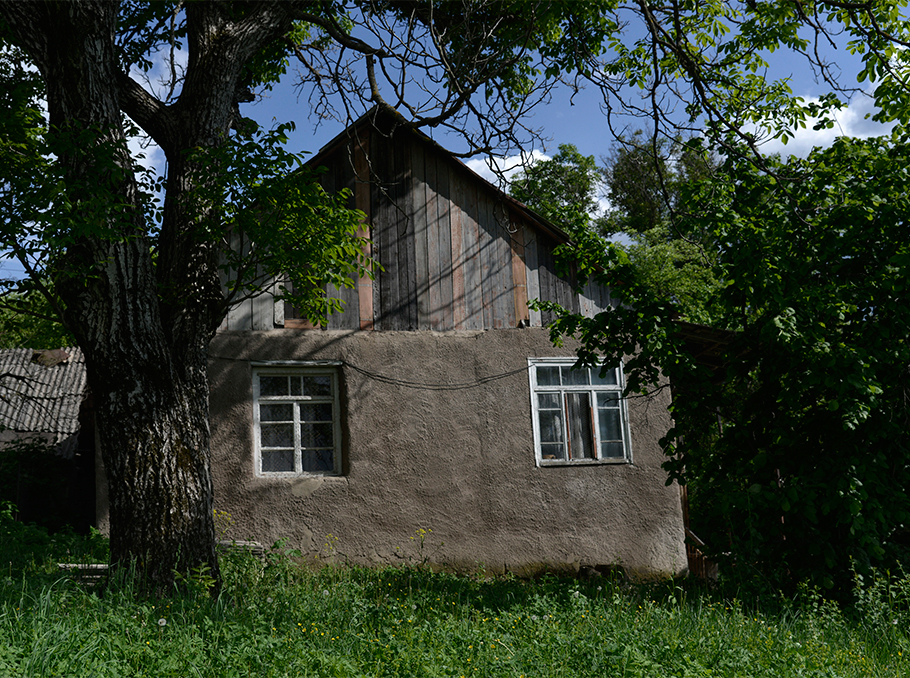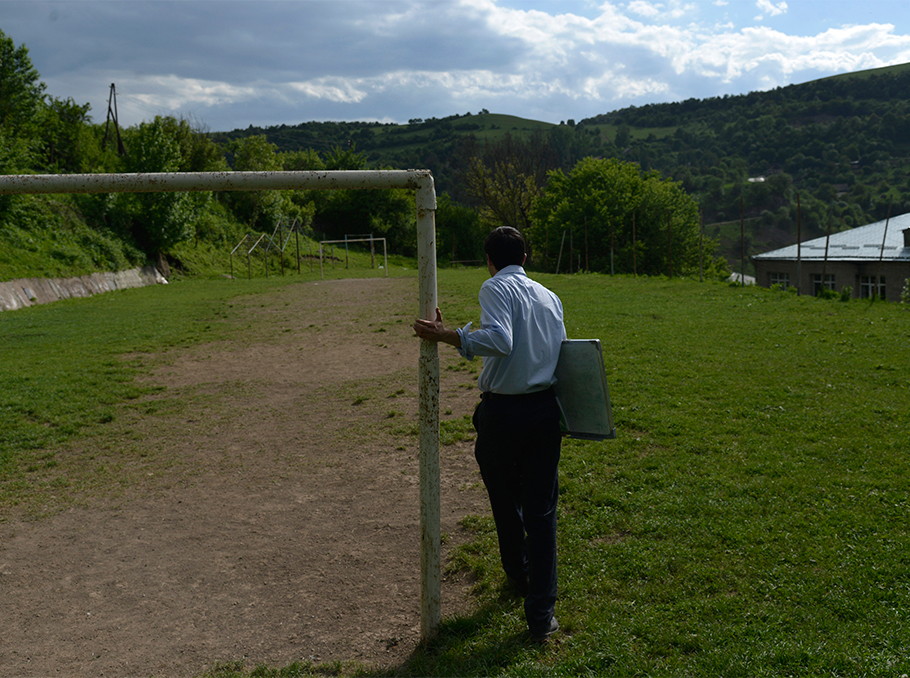A large leather bag with many pockets completes the image of a 24-year-old English teacher. To differ from the students, Thomas Toghramadjian replaced the backpack with a handbag. Once the children saw it, they immediately decided it was a bag for carrying apples.
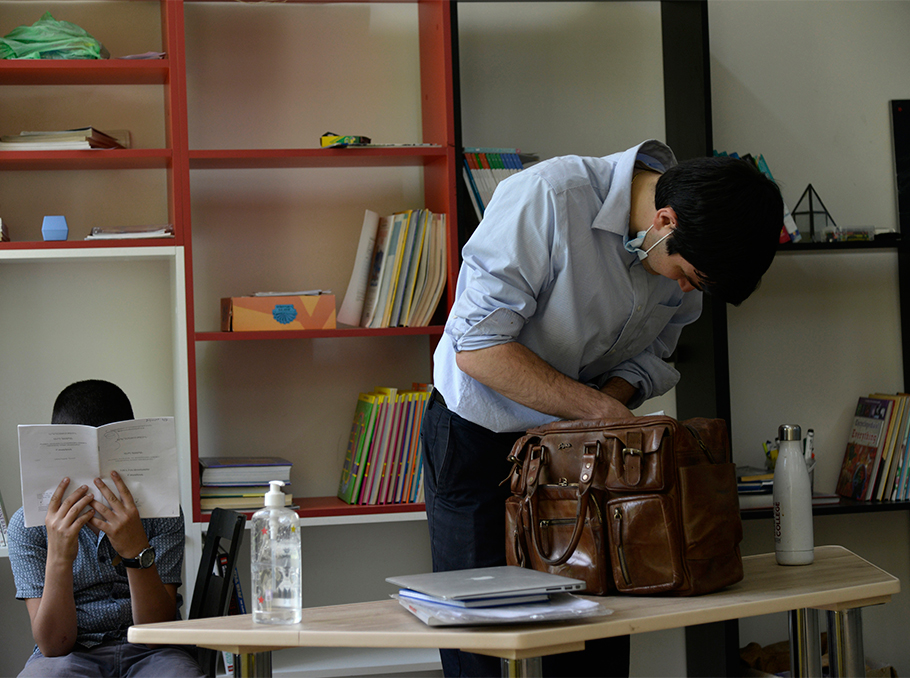
Photo: Vaghinak Ghazaryan (especially for Mediamax)
Over the last two years, they learned each other’s cultural differences and got used to them.
“I lived and grew up in a culture where it is very uncommon and even insulting if someone approaches you on the street and wants to get acquainted, to communicate. You can ask something, but if you talk longer, the other person will get the feeling that something very dangerous is happening. From the very first day, I deliberately tried to be very open and friendly with people.
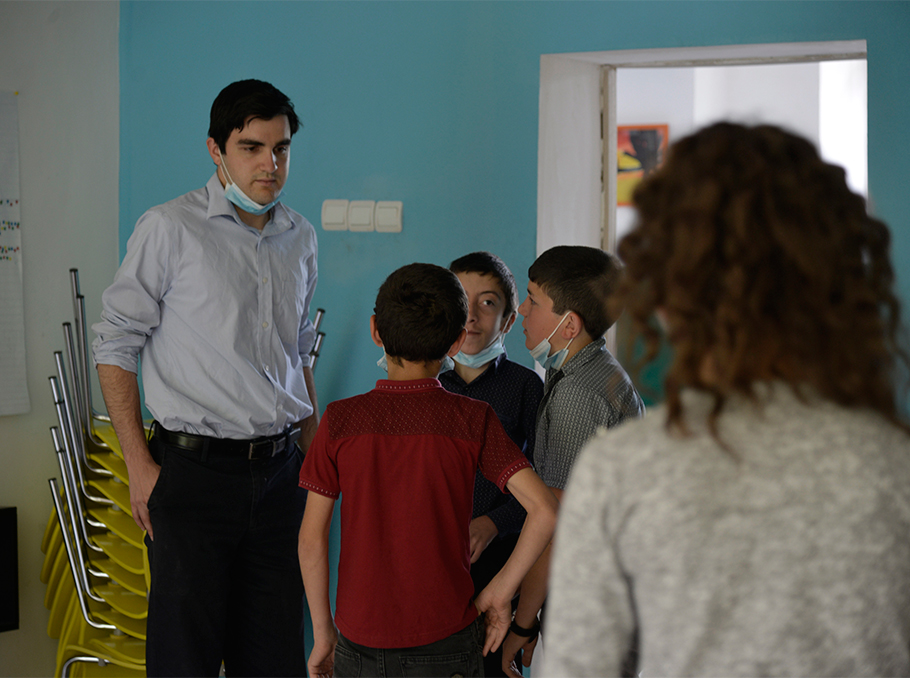
Photo: Vaghinak Ghazaryan (especially for Mediamax)
I always had a schedule back in America, I knew what I had to do and when to do it. I had to organize my day so that I could manage to do everything I had planned. It doesn’t work this way here, because at any moment a child can appear at the door and say, - ‘Comrade Thomas, can we have a lesson?’, ‘Do you want to go to the fields?’ or he just came to chat a little. How can I tell this child or my neighbor that I am very busy? I can’t. If I am too busy, I will say it’s not a good time, but I always go, as a rule.”
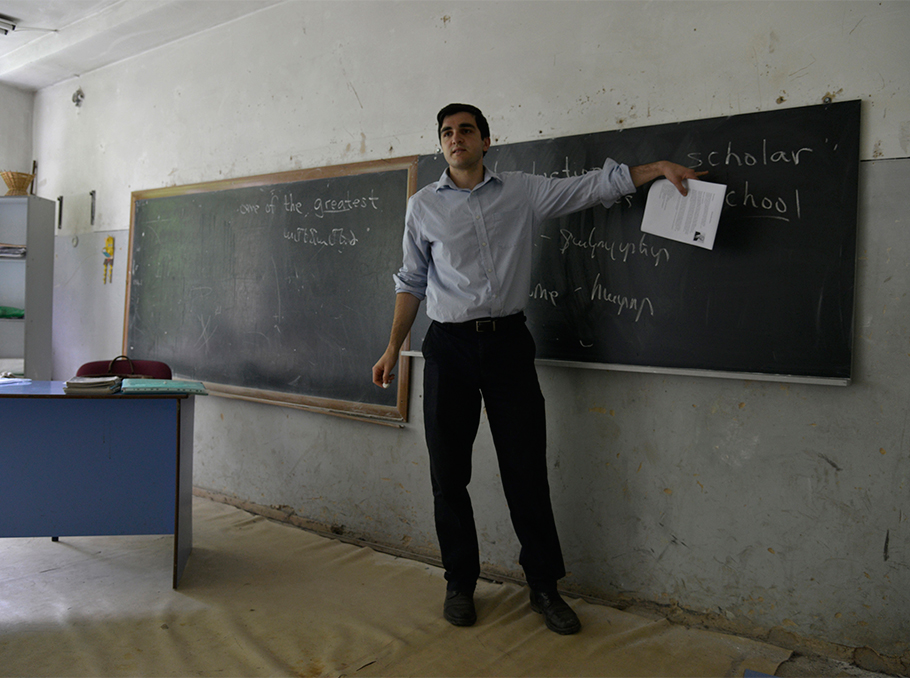
Photo: Vaghinak Ghazaryan (especially for Mediamax)
Thomas is half Armenian. His father moved to the USA from Lebanon. He and his siblings were born and raised in the United States, always eager to learn more about their father’s family.
“We felt that there was something very symbolic and interesting in that other Armenian world, but we didn’t even have words to explain that difference.”
They visited Lebanon several times and were baptized there.
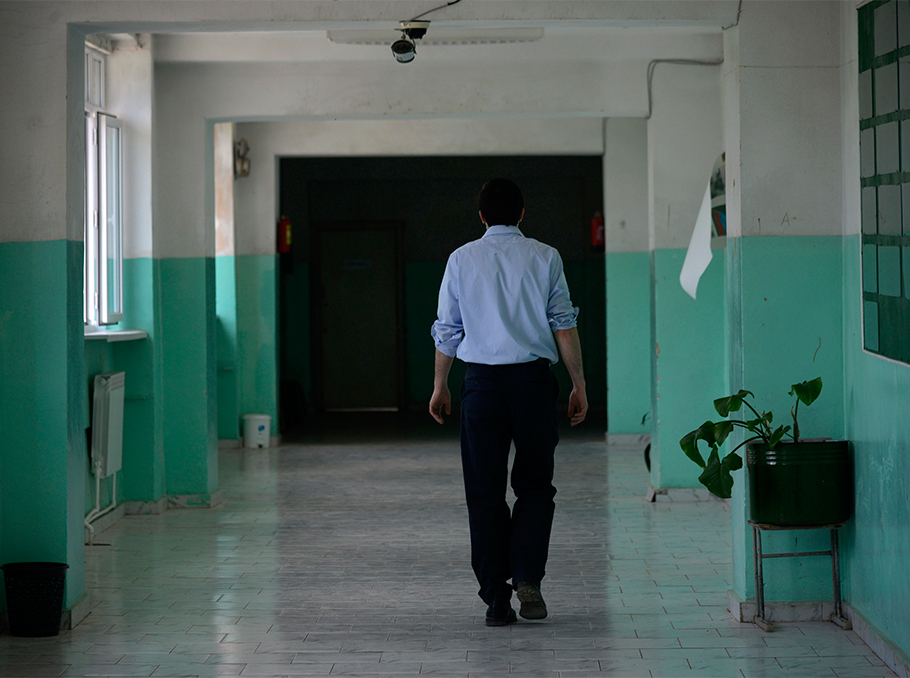
Photo: Vaghinak Ghazaryan (especially for Mediamax)
When the priest in Minnesota offered the brothers to serve in the Armenian church, they agreed. Although they didn’t understand the Old Armenian language, they learned to read and pronounce Armenian words. “It was a source of being Armenian,” says Thomas.
Thomas decided to become a lawyer, and although he changed his mind while studying, he didn’t give up his studies. He came to Armenia for the first time with a scholarship provided by the university to do research and learn languages in another country. Then, the second and third visits followed, until he made the final decision to move from the USA.
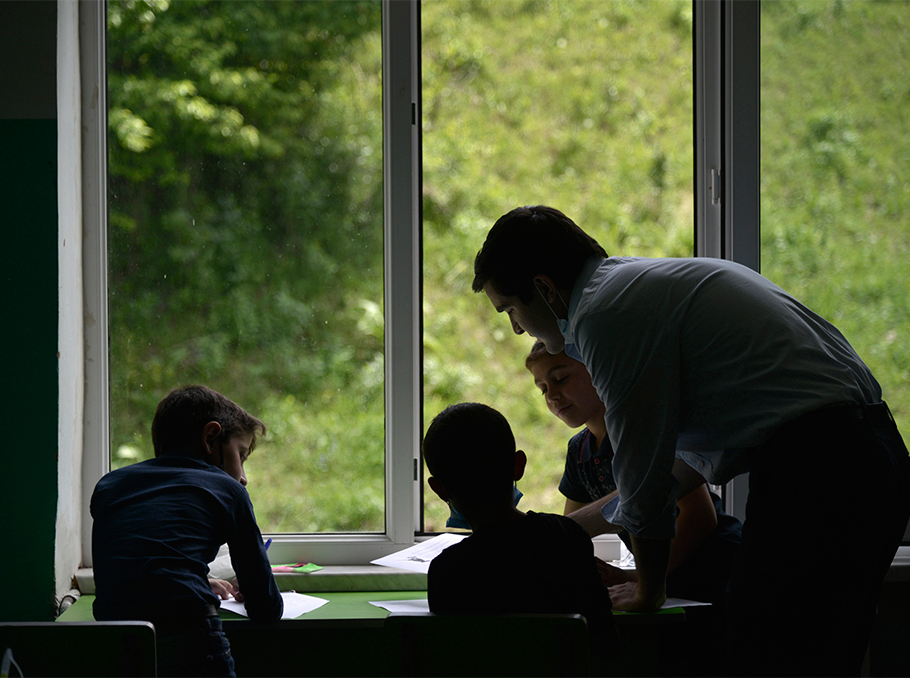
Photo: Vaghinak Ghazaryan (especially for Mediamax)
The Diasporan Armenia is different, Thomas says, and he wanted to live a rural life in real Armenia, far from Yerevan.
He applied to Teach For Armenia, even though he had never thought about the profession of a teacher. He says that the word “Armenia” was more important than the word “teach” in this case.
“I applied for several reasons. First of all, I wanted to learn Armenian. I started learning on my own, but I knew very well that if I wanted to live my life as an Armenian, I would have to come to Armenia and be surrounded by all of this. I knew I could become a priest or a writer, but whatever I did, I had to do it as an Armenian. I also wanted to serve my homeland in some way, because I already loved the Armenian people very much and wanted to do something good and live among them.”
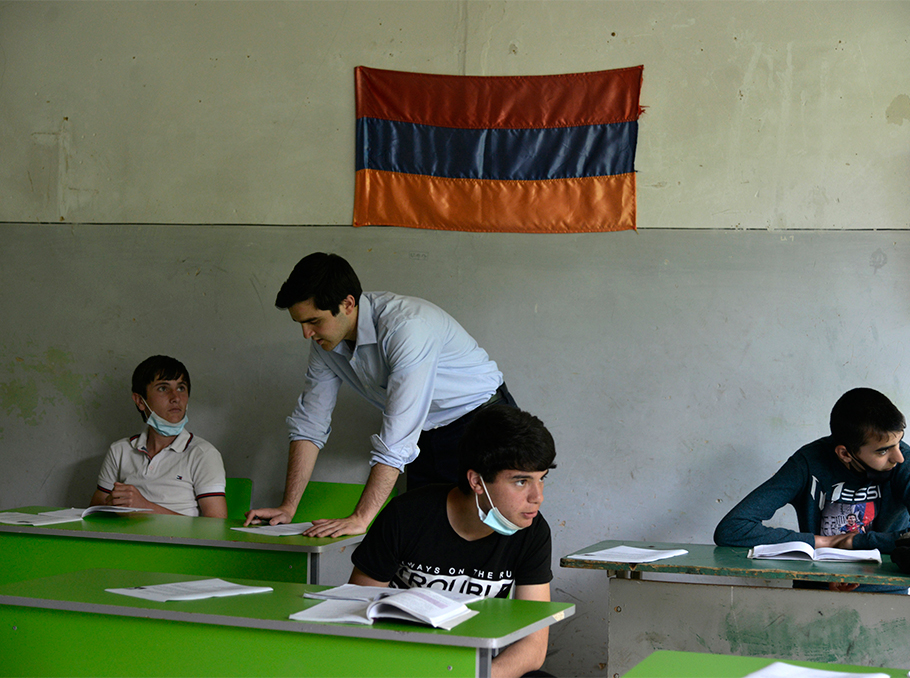
Photo: Vaghinak Ghazaryan (especially for Mediamax)
In the summer of 2019, Thomas moved to Debet village of Lori region to teach English. He says that the school he used to attend was taught by a special Montessori method. So, without being familiar even with traditional American schools, he found himself in Armenia, and it took a lot of effort to get used to its education system.
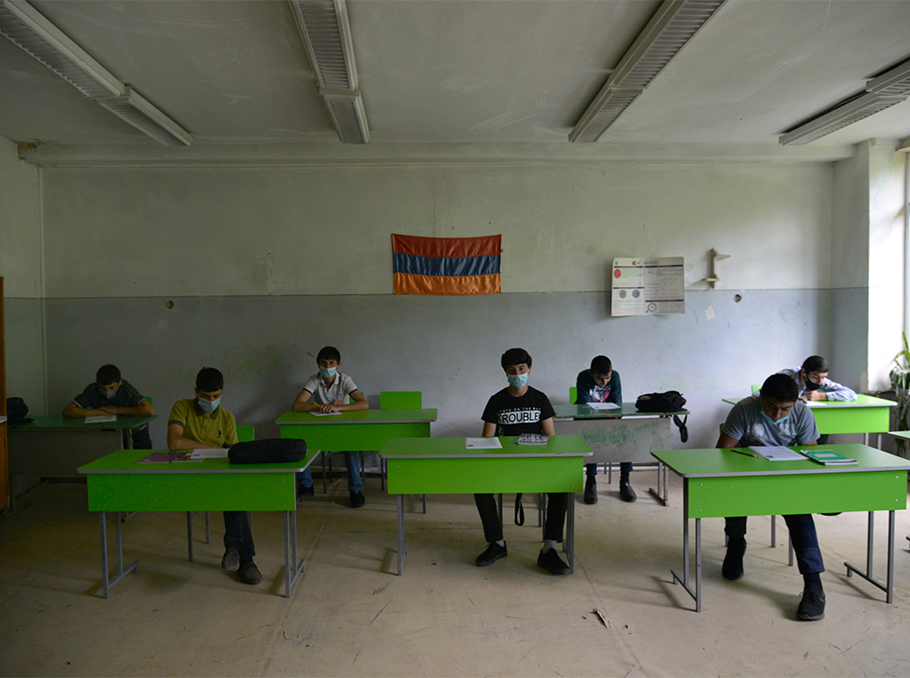
Photo: Vaghinak Ghazaryan (especially for Mediamax)
“It’s a big job to convince the children to sit down and listen to you. It’s not that the subject and the knowledge are not interesting. The same child who can hardly sit in a chair during class can come up to you after class and say, - ‘Comrade Thomas, Comrade Thomas, can we have a class today?’ I am a traditional person, but a child should not learn that way. It’s good for them to go their own way, follow their interests, and go deeper into the work they want.”
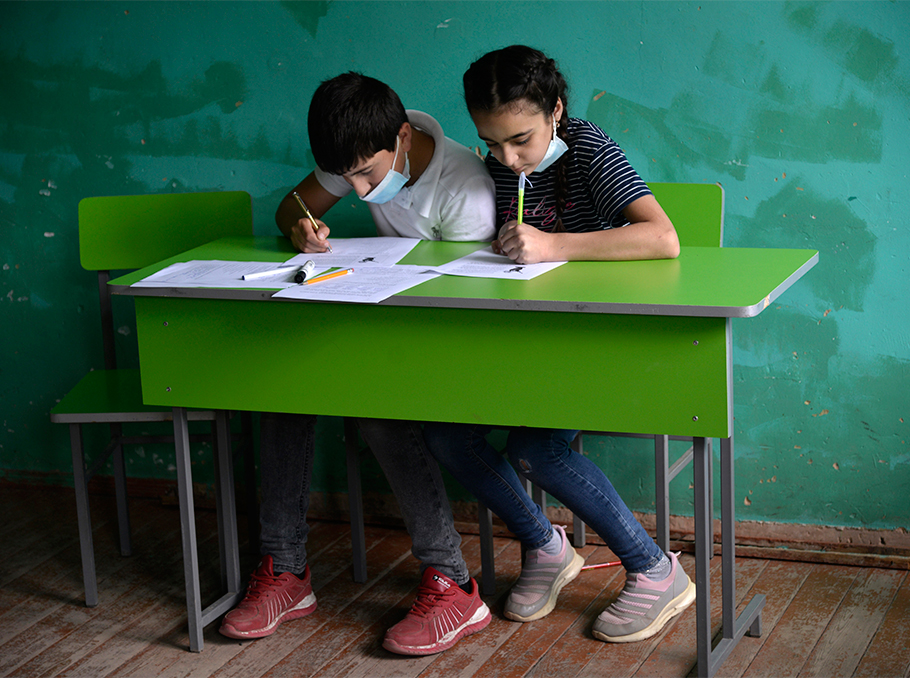
Photo: Vaghinak Ghazaryan (especially for Mediamax)
Thomas’s master’s thesis is about alternative approaches to teaching. Parallel to teaching, he studies at the Brusov State University of Languages and Social Sciences. “Over these 2 years I have failed so much and have had small achievements that I am ready to continue my work at school,” he says.
- I feel that you are tired of reading. Let’s play a game.
- If it’s an interesting game, let’s play it, - say the 9th graders.
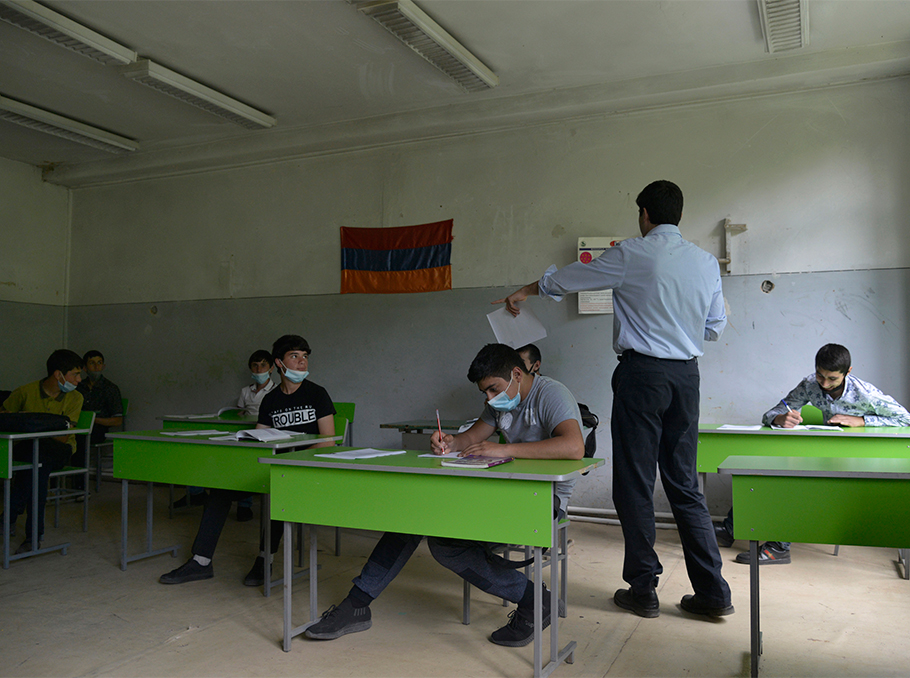
Photo: Vaghinak Ghazaryan (especially for Mediamax)
Thomas is trying to make English interesting for Debet children with games, posters, and extracurricular activities. He feels especially responsible for the 3d and 4th graders, because he is their first English teacher.
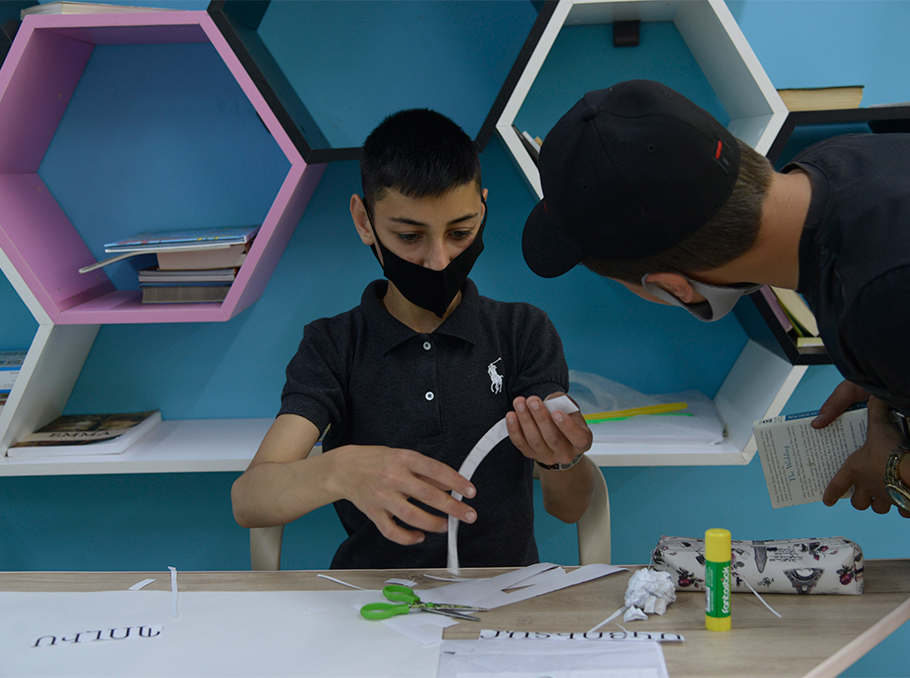
Photo: Vaghinak Ghazaryan (especially for Mediamax)
“The first years are the most important ones. If, from an early age, the child feels that he is not good at English and fails it, that thought will haunt him for 10 years, and in the end he can finish school by having wasted time and without learning English. Children always want to do something that’s easy for them and they have skills for. There are students who need extra attention. Sometimes, on the contrary, they understand quickly, get bored during the lesson and want to know more. I want to give them the opportunity to communicate freely through my teaching, so that the language becomes usable every day.”
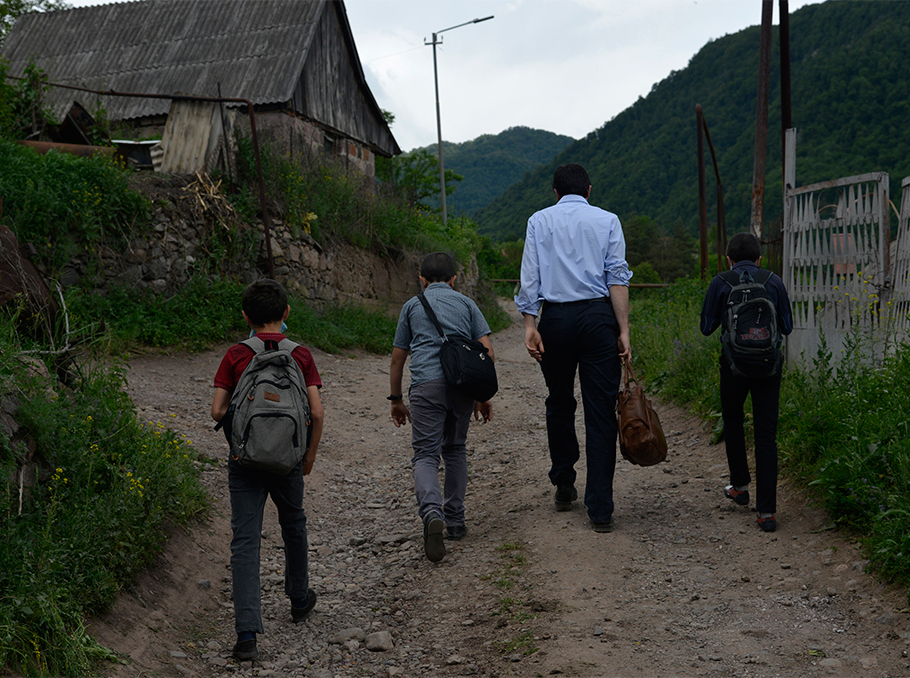
Photo: Vaghinak Ghazaryan (especially for Mediamax)
After classes, with the small blackboard under one arm, the copybooks and the books under the other, Thomas goes to the Tzut district. After picking up the children on this way, they have an English class on someone’s balcony or just outdoors.
- Hello, Comrade Thomas.
- Hello. Are you coming to a lesson?
- No, probably tomorrow.
Along with English lessons, he also opened a tourist club. Together with the students they have come up with a project. They are going to print out brochures about the sights of their village, the duration and the price of excursions, and offer them to the tourists visiting Debet.
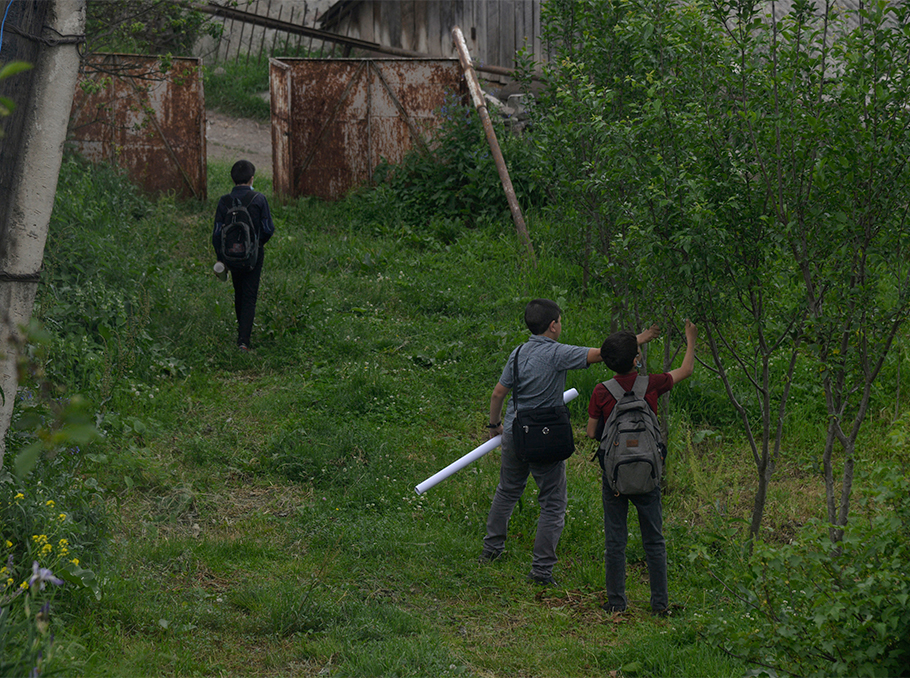
Photo: Vaghinak Ghazaryan (especially for Mediamax)
Although Thomas has been in Debit for two years, he has not yet overcome everyday problems.
“The village is not lacking in anything. I was just not ready to enjoy its treasures. All the difficulties come from my personal shortcomings.”
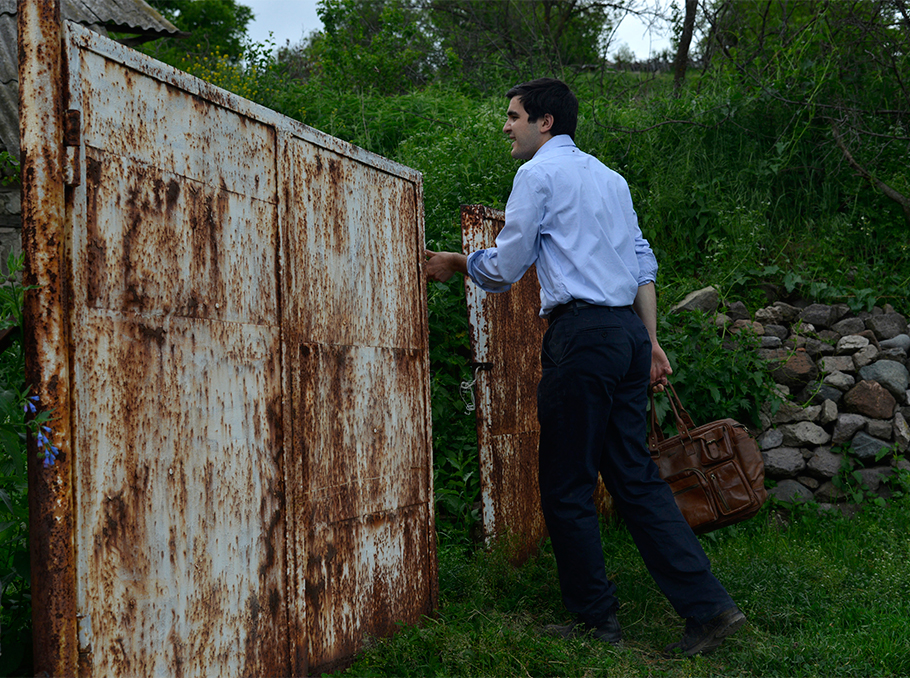
Photo: Vaghinak Ghazaryan (especially for Mediamax)
The house where Thomas lives is big, but he occupies only one room. “I have changed nothing in this house. The repairs were done by the owners, but the disorder is mine,” he says.
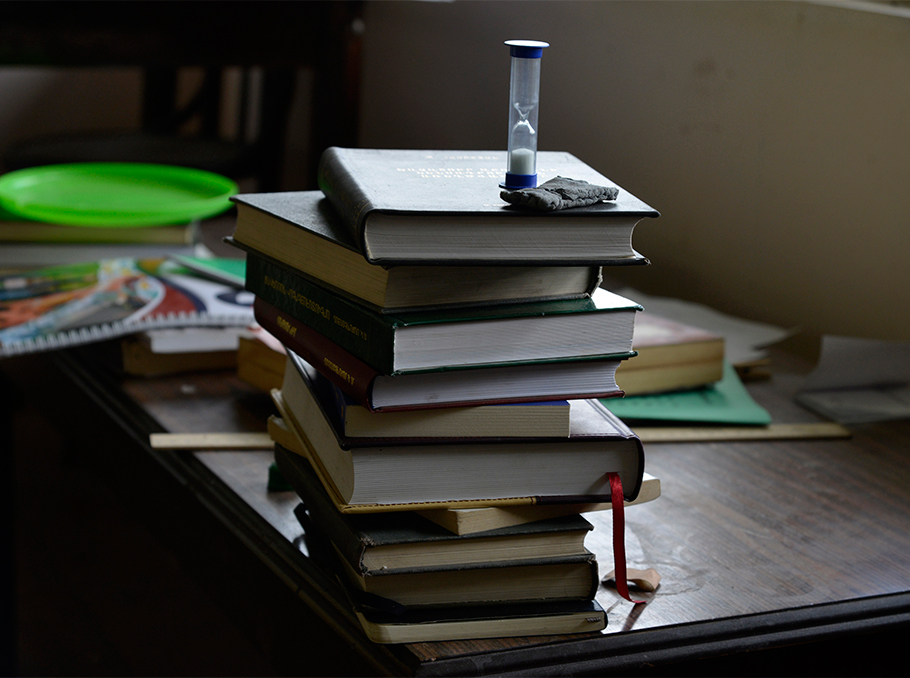
Photo: Vaghinak Ghazaryan (especially for Mediamax)
One glance is enough to understand that Thomas is not bothered by everyday routine. There are only the most necessary things in the room and books everywhere. The large windows of the room that serves both as a living room, a bedroom and a study, don’t even have curtains.
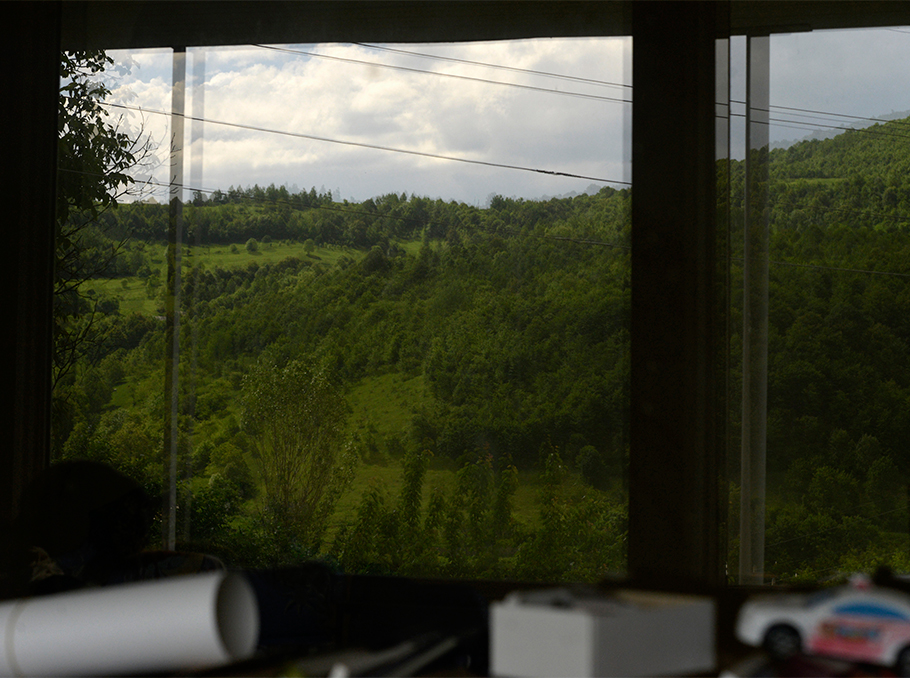
Photo: Vaghinak Ghazaryan (especially for Mediamax)
“That is the biggest problem. If I work long hours, I can’t fall asleep until 2-3am. The next day children ask me what I was doing at 2 o’clock at night.”
It is not only the curtainless windows that stir the villagers’ interest in Thomas’s daily life. In a small and hospitable community, everyone offers their help and friendship.
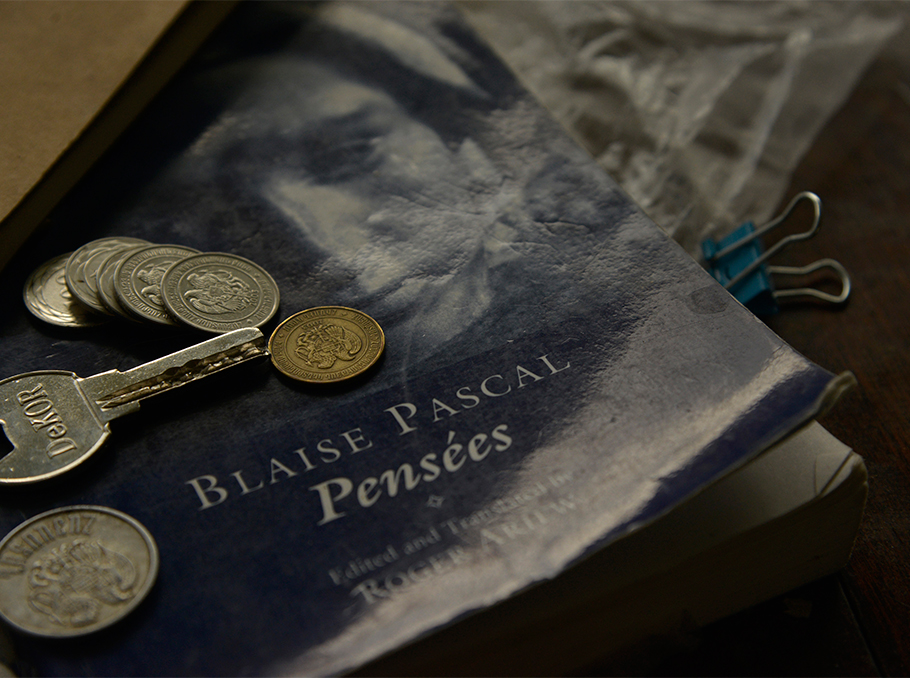
Photo: Vaghinak Ghazaryan (especially for Mediamax)
“I like walking very much. I arrange my thoughts that way. But I can’t go far, because I always see someone who would say, ‘Oh, Tom, where have you been? I have been calling you, but you haven’t been answering your phone. We haven’t seen each other for months’. There are 900 people in the village, and no matter how much I want to be open, there is always someone whom I haven’t befriended yet. So, I'm going to spend some time with them.
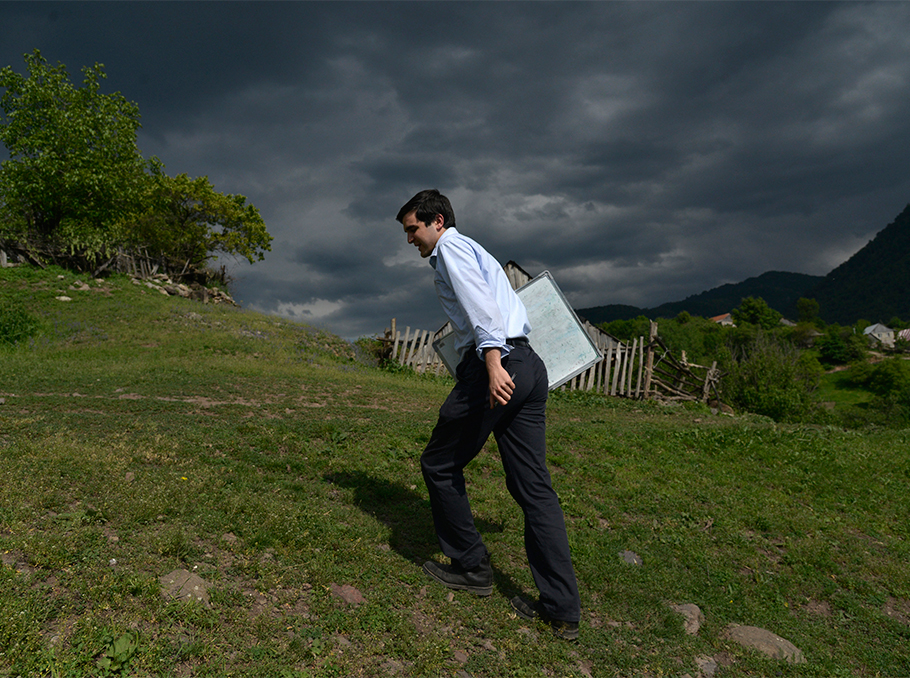
Photo: Vaghinak Ghazaryan (especially for Mediamax)
I am very grateful that my neighbors are so hospitable, that we have such a good community, but being under the magnifying glass is a hard feeling. Sometimes I dream of living in the city so that I can walk anonymously, alone, and no one will take an interest in me. But the sense of separateness that exists in cities is spiritually devastating and is a far more serious problem than living in a small community.”
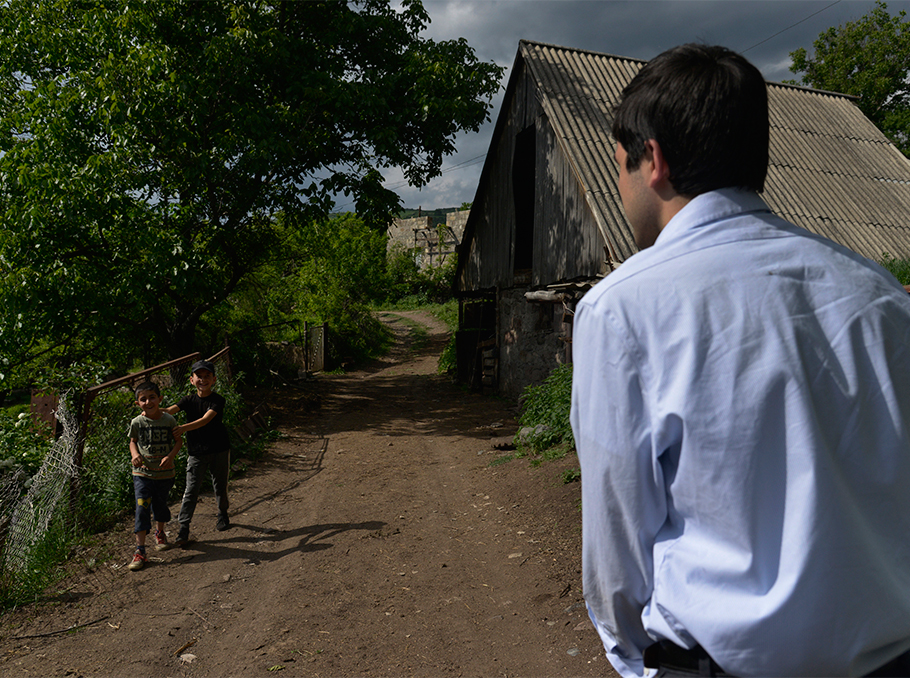
Photo: Vaghinak Ghazaryan (especially for Mediamax)
Thomas is going to complete the program soon. Before coming to Armenia, he thought that he would teach for 2 years, learn good Armenian, return to the U.S. and continue his studies. Living in Armenia was in his remote plans. The war that started on September 27, 2020 changed all the intentions. He enlisted as a volunteer but his turn never came.
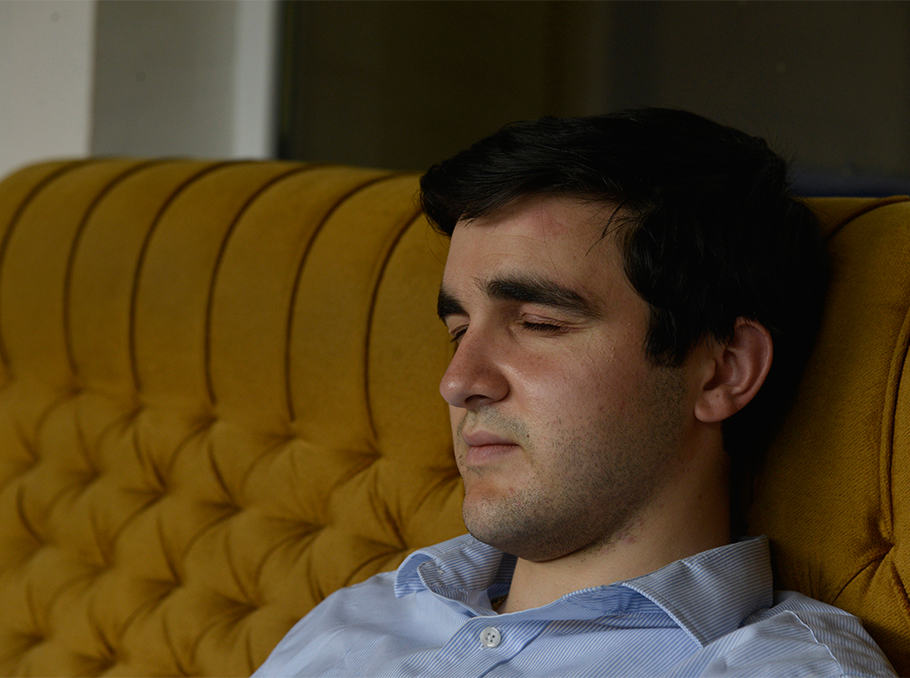
Photo: Vaghinak Ghazaryan (especially for Mediamax)
“The defeat was very unexpected, at least for me. I felt that it was the crisis of our nation. I started to feel comfortable and calm in Armenia, and it was easy for me to imagine my family living here 20 years from now. It seemed to me that this country was a solid foundation for the future, even more so than the United States. It turned out that Armenia is not the stable foundation I thought it was. Our future is not guaranteed.
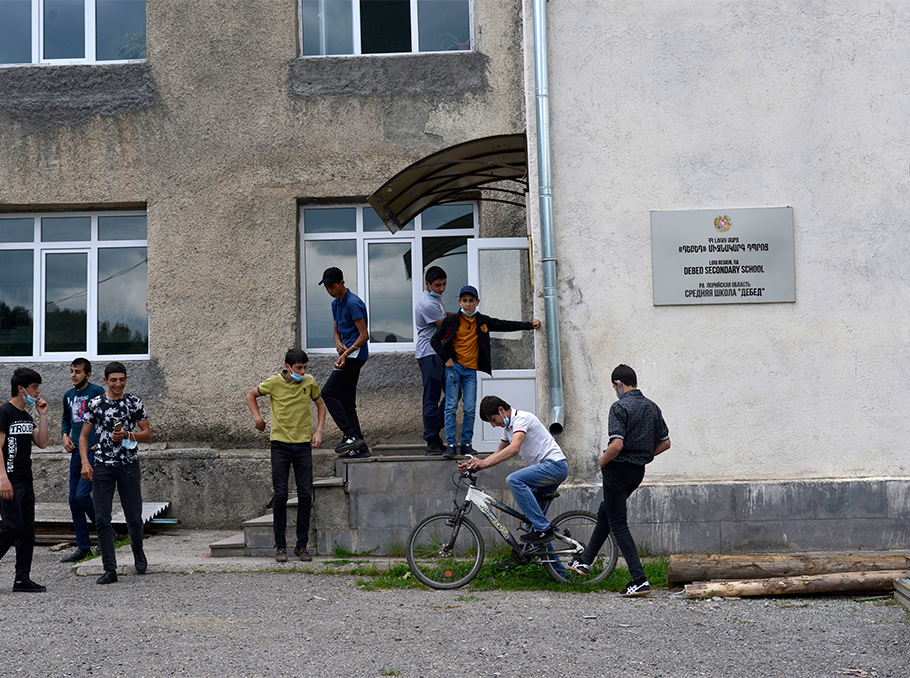
Photo: Vaghinak Ghazaryan (especially for Mediamax)
I was teaching the future tense in the 7th grade and brought a random example: “Do you think Armenia will exist in 15 years?”: 12 out of 13 students said NO. I thought, how can I go back, if we, like Monte once said, have turned the last page of our history. I don’t want to say sad things. I believe we have a future, but it won’t be a good one if everyone who has the chance leaves Armenia. I have so much love for this country and people that it has become impossible to be in another country. There are many children in school for whom teachers, classmates, even parents don’t have big goals. There is no lack of love, but there is a lack of hope. Every child is important to us, we have no place for losses.”
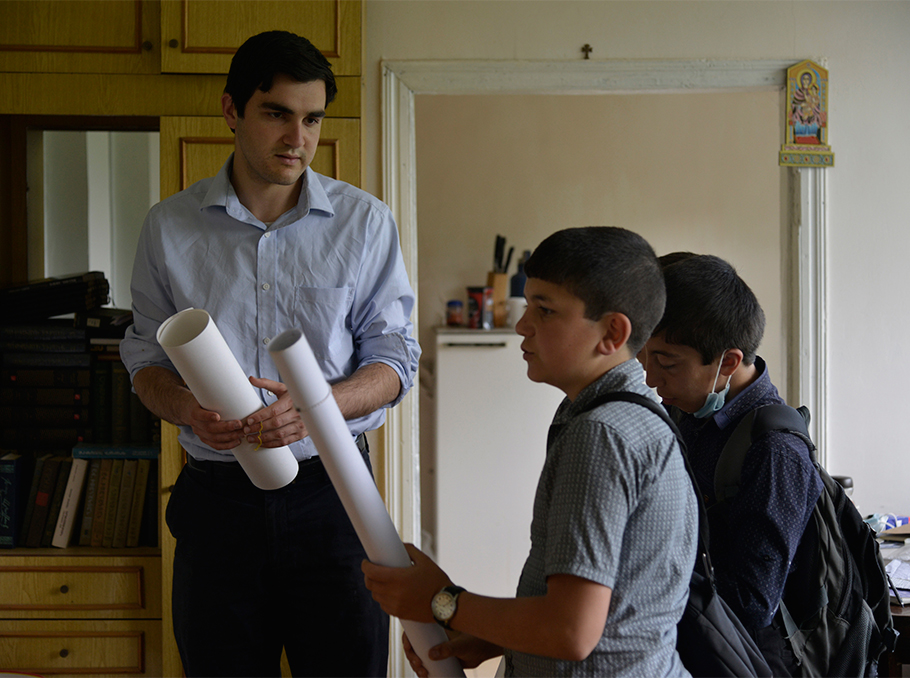
Photo: Vaghinak Ghazaryan (especially for Mediamax)
Thomas has two goals now: one is pedagogical, and the other one is personal-literary, as he says. Come September, he will study Armenian language and literature at the Yerevan State University. He dreams of translating Armenian authors without difficulty. He has already translated some works by Shirvanzade and Bakunts, but not for publication. He will work until he is sure that he can translate the unique work by Charents - “Yerkir Nairi” (Land of Nairi).
He says these two years have been a period of great challenges. He feels stronger and more confident now.
“It feels like I have left Thomas Toghramadjian in America and I am a new person now. I have found my Armenian personality here and I will remember that in some way I was born in Armenia, in one of the villages of Lori. I will always consider myself from Lori.
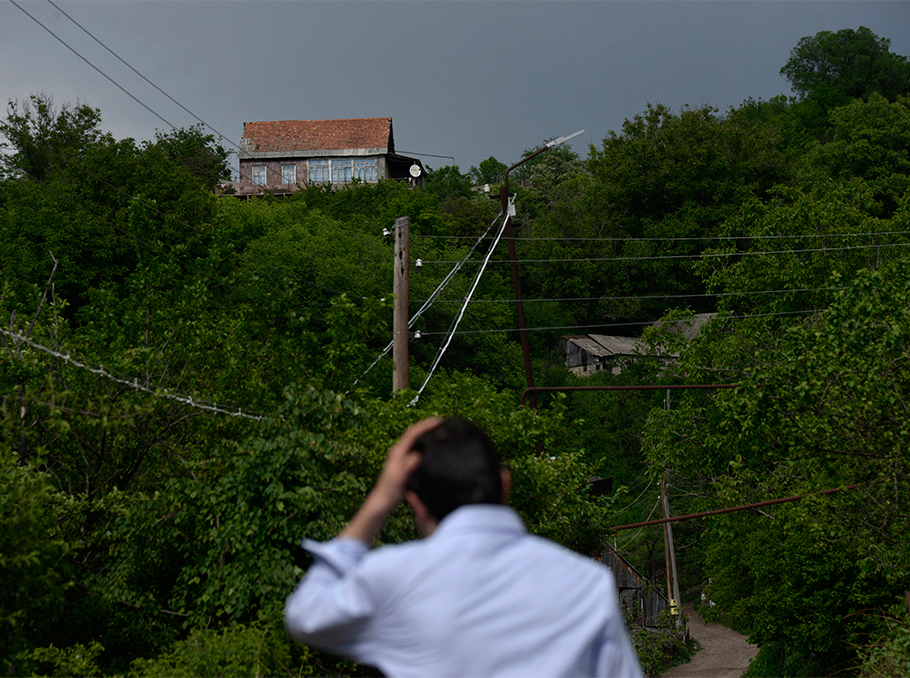
Photo: Vaghinak Ghazaryan (especially for Mediamax)
These were also two years of education for me. What I taught the children, I learned 10 times more from them, starting with the Armenian language. The child is the best teacher because he pursues you to answer his question. If I misunderstand something when communicating with adults, I answer incorrectly; they often don’t say it so that I don’t feel bad, whereas the child will say, - ‘Comrade Thomas, you didn’t answer my question’. I also got acquainted with the Armenian culture. Now I know what “magarich” is (a “tip” or money to speed things up), I have seen what they do on the “merelots” day (remembrance day of those who have passed away) or how the Genocide Day is commemorated in the village. Nature in America is wonderful, but it is very far from human life. If you want to see nature, you drive 100 miles, see it, take pictures and come back. There is no village in America which has scenes like this.”
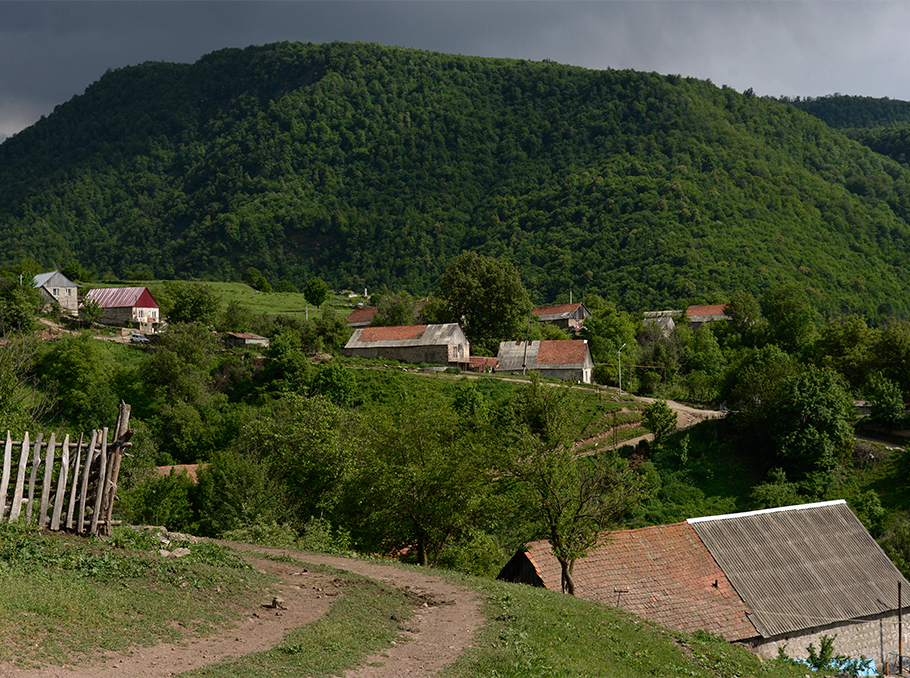
Photo: Vaghinak Ghazaryan (especially for Mediamax)
Thomas is sure his parents are proud that he has eventually become an Armenian. His mother has already visited him in Debet once. He says his family is very close, and they don’t want to live far from each other. If they are going to be together again, it will be in Armenia.
Lusine Gharibyan
Photos by Vaghinak Ghazaryan (especially for Mediamax)









